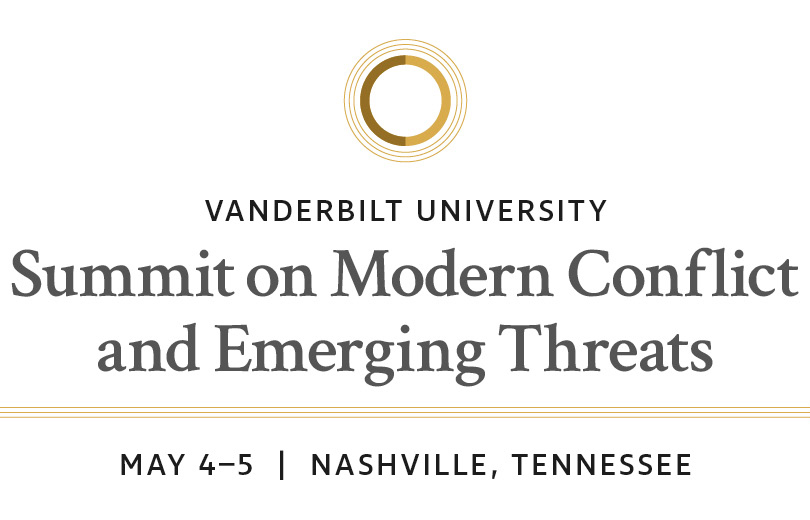
Warning: count(): Parameter must be an array or an object that implements Countable in /var/www/dev.vanderbilt.edu/wordpress/wp-content/plugins/futurevu-bb-modules/futurevu-link-list/includes/frontend.php on line 16
Warning: Invalid argument supplied for foreach() in /var/www/dev.vanderbilt.edu/wordpress/wp-content/plugins/futurevu-bb-modules/futurevu-link-list/includes/frontend.php on line 17
Table of Contents
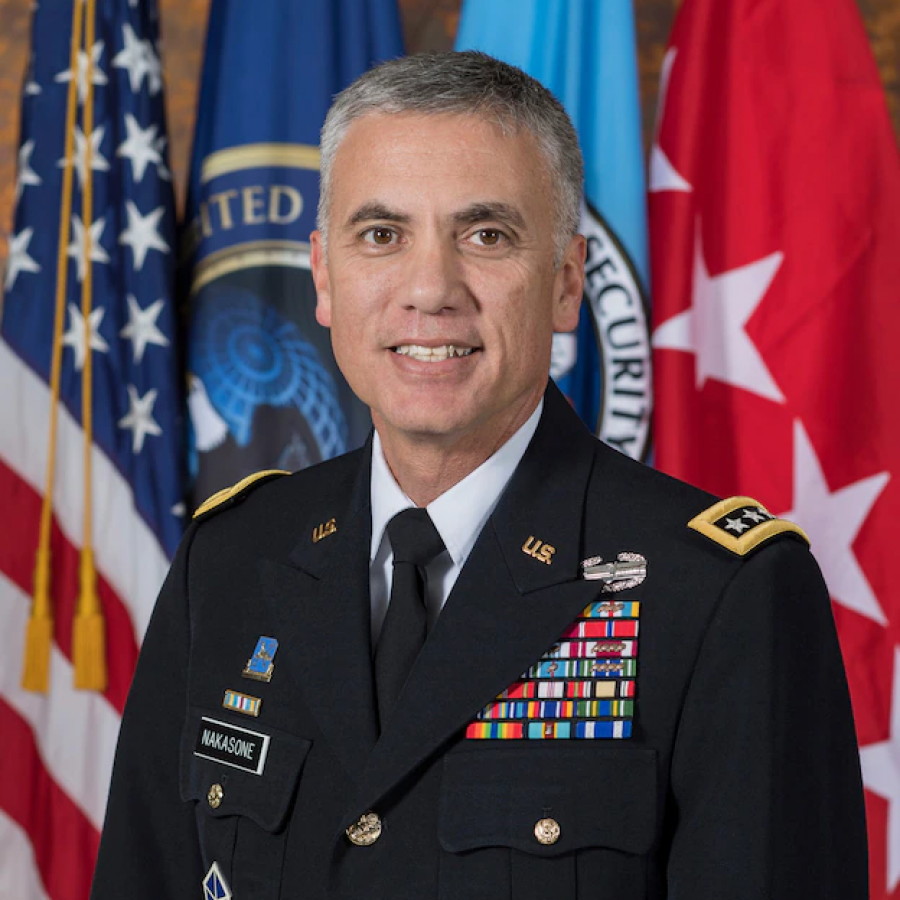
Closing Keynote Speaker: General Paul Nakasone
United States Army, Commander, United States Cyber Command, Director, National Security Agency/Chief, Central Security Service
General Paul M. Nakasone assumed his present duties as Commander, U.S. Cyber Command and Director, National Security Agency/Chief, Central Security Service in May 2018.
He previously commanded U.S. Army Cyber Command from October 2016 - April 2018.
A native of White Bear Lake, Minnesota, GEN Nakasone is a graduate of Saint John's University in Collegeville, Minnesota, where he received his commission through the Reserve Officers' Training Corps.
GEN Nakasone has held command and staff positions across all levels of the Army with assignments in the United States, the Republic of Korea, Iraq, and Afghanistan.
GEN Nakasone commanded the Cyber National Mission Force at U.S. Cyber Command. He has also commanded a company, battalion, and brigade, and served as the senior intelligence officer at the battalion, division and corps levels.
GEN Nakasone has served in Joint and Army assignments in the United States, the Republic of Korea, Iraq, and Afghanistan. His most recent overseas posting was as the Director of Intelligence, J2, International Security Assistance Force Joint Command in Kabul, Afghanistan.
GEN Nakasone has also served on two occasions as a staff officer on the Joint Chiefs of Staff.
GEN Nakasone is a graduate of the U.S. Army War College, the Command and General Staff College, and Defense Intelligence College. He holds graduate degrees from the U.S. Army War College, the National Defense Intelligence College, and the University of Southern California.
GEN Nakasone's awards and decorations include the Distinguished Service Medal (with oak leaf cluster), the Defense Superior Service Medal (with three oak leaf clusters), Legion of Merit, Bronze Star, Defense Meritorious Service Medal (with oak leaf cluster), Army Commendation Medal, Joint Service Achievement Medal (with oak leaf cluster), Army Achievement Medal (with four oak leaf clusters), Joint Meritorious Unit Award, Iraq Campaign Medal, Afghanistan Campaign Medal, Combat Action Badge, and the Joint Chiefs of Staff Identification Badge.
GEN Nakasone and his wife are the proud parents of four children, who form the nucleus of “Team Nakasone.”
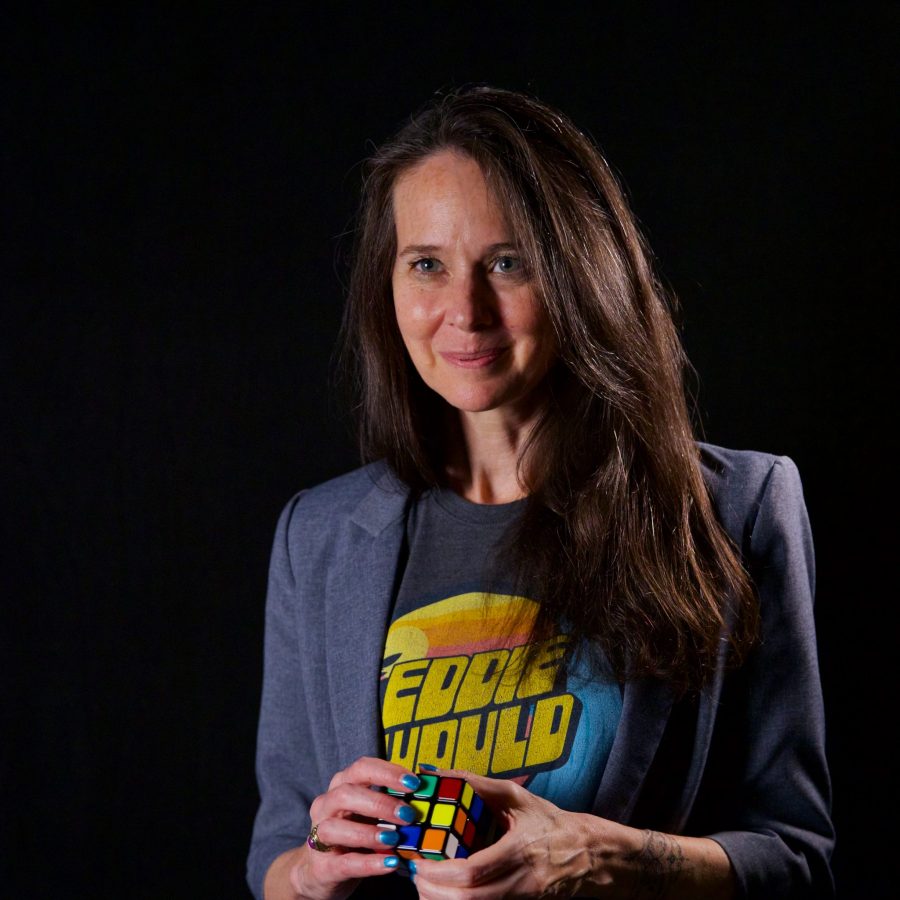
Keynote Speaker: Director Jen Easterly
Director, Cybersecurity and Infrastructure Security Agency (CISA)
Jen Easterly is the Director of the Cybersecurity and Infrastructure Security Agency (CISA). Ms. Easterly was nominated by President Biden in April 2021 and unanimously confirmed by the Senate on July 12, 2021. As Director, Ms. Easterly leads CISA’s efforts to understand, manage, and reduce risk to the cyber and physical infrastructure Americans rely on every day.
Before serving in her current role, Ms. Easterly was the head of Firm Resilience at Morgan Stanley, responsible for ensuring preparedness and response to business-disrupting operational incidents and risks to the Firm.
Ms. Easterly has a long tradition of public service, to include two tours at the White House, most recently as Special Assistant to President Obama and Senior Director for Counterterrorism. She also served as the Deputy for Counterterrorism at the National Security Agency.
A two-time recipient of the Bronze Star, Ms. Easterly retired from the U.S. Army after more than twenty years of service in intelligence and cyber operations, including tours of duty in Haiti, the Balkans, Iraq, and Afghanistan. Responsible for standing up the Army’s first cyber battalion, Ms. Easterly was also instrumental in the design and creation of United States Cyber Command.
A distinguished graduate of the United States Military Academy at West Point, Ms. Easterly holds a master’s degree in Philosophy, Politics, and Economics from the University of Oxford, where she studied as a Rhodes Scholar. She is the recipient of the James W. Foley Legacy Foundation American Hostage Freedom Award and the Bradley W. Snyder Changing the Narrative Award.
A member of the Council on Foreign Relations and a French-American Foundation Young Leader, Ms. Easterly is the past recipient of numerous fellowships, including the Aspen Finance Leaders Fellowship, the National Security Institute Visiting Fellowship, the New America Foundation Senior International Security Fellowship, the Council on Foreign Relations International Affairs Fellowship, and the Director, National Security Agency Fellowship.
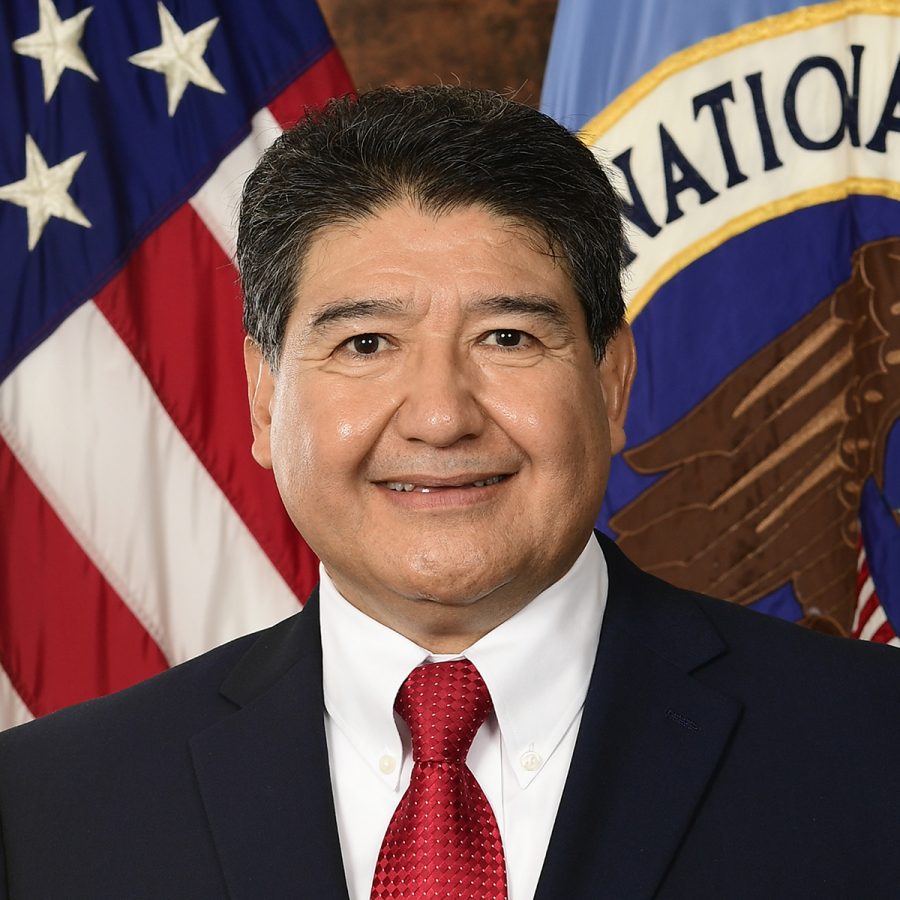
Keynote Speaker: Director Gil Herrera
Director of Research, National Security Agency
Mr. Gilbert (Gil) V. Herrera serves as the Director of Research at the National Security Agency. The Research Directorate conducts world-class scientific research to develop new and innovative techniques and technologies to enable the signals intelligence and cybersecurity missions of NSA and Central Security Service, as well as joint-authority missions of the intelligence community and Department of Defense.
Mr. Herrera joined NSA after serving nearly 40 years at the Sandia National Laboratories where his last assignment was a Laboratory Fellow, only one of 15 such appointment in Sandia’s 70-year history. In 2020, he was appointed to the U.S. National Quantum Initiative Advisory Committee, which advises the nation’s highest offices on matters concerning quantum information science. He is Fellow of the American Association of the Advancement of Science and a senior member of the Institute of Electrical and Electronics Engineers.
Mr. Herrera previously served with NSA as the Director of the Laboratory for Physical Sciences between 2015-2018. He also served as the Director or Microsystems Science and Technology from 2006 through 2015, which included directing Sandia’s MESA complex, a silicon and compound semiconductor fabrication facility that also includes more than 120 individual research laboratories.
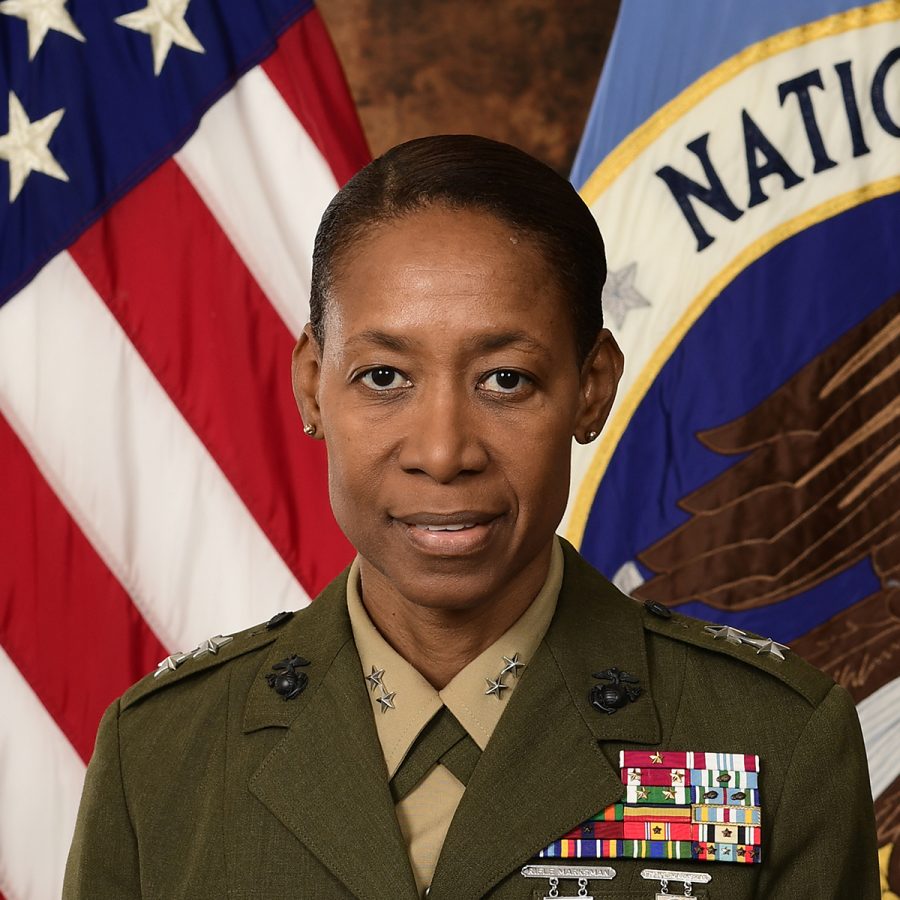
Keynote Speaker: Major General Lorna Mahlock
Cybersecurity Directorate's Deputy Director for Combat Support, National Security Agency
Major General Lorna Mahlock is the Cybersecurity Directorate's Deputy Director for Combat Support charged with preventing and eradicating threats to U.S. National Security Systems and critical infrastructure.
Prior to her current assignment, she served as Assistant Deputy Commandant for Information, Director, Command, Control, Communications and Computers (C4) leading the Office of the Chief Information Officer (CIO) for the Marine Corps.
Born in Kingston, Jamaica, she immigrated to Brooklyn, New York and enlisted in the Marine Corps. She was selected for the Marine Corps Enlisted Commissioning Education Program, graduated from Marquette University and was commissioned in December 1991.
Designated as an Air Traffic Control Officer, she earned certifications as a Federal Aviation Administration (FAA) Tower Local Controller and a Marine Aviation Weapons and Tactics Instructor. She has commanded and led at various levels globally and in combat including but not limited to: Air Traffic Control Detachment Commander; Executive Officer - 1st Stinger Battery; Director - Marine Corps Instructional Management School; Air Control Officer - G3 Future Operations 1 st Marine Aircraft Wing; Company Commander - Operation SOUTHERN WATCH and IRAQI FREEDOM 01; Operations and Executive Officer - IRAQI FREEDOM 02; Director - Marine Air Command and Control System Experimental; Commanding Officer - IRAQI FREEDOM 08; Information Management Officer; J3 Land Operations Lead and Division Executive Officer, Headquarters European Command; Marine Corps Office of Legislative Affairs and Assistant Chief of Staff G6, Deputy Director of Operations, Plans Policy and Operations, (PP&O) Headquarters United States Marine Corps; and HQMC Director of C4/Chief Information Officer (CIO).
She holds a Master's Degree in Adult and Higher Education from the University of Oklahoma at Norman; a Masters in National Security and Strategic Studies with distinction from the Naval Post Graduate School, Newport, Rhode Island; a Masters in Strategic Studies from the US Army War College and a Masters Certificate in Information Operations from the Naval Post Graduate School. She also is a graduate of the United Kingdom Defense College Higher Command and Staff.
Major General Mahlock's personal awards include Legion of Merit; Defense Meritorious Service Medal; Meritorious Service Medal; Joint Service Commendation Medal; Joint Service Achievement Medal; Navy and Marine Corps Commendation Medal; Navy and Marine Corps Achievement Medal and Good Conduct Medal.
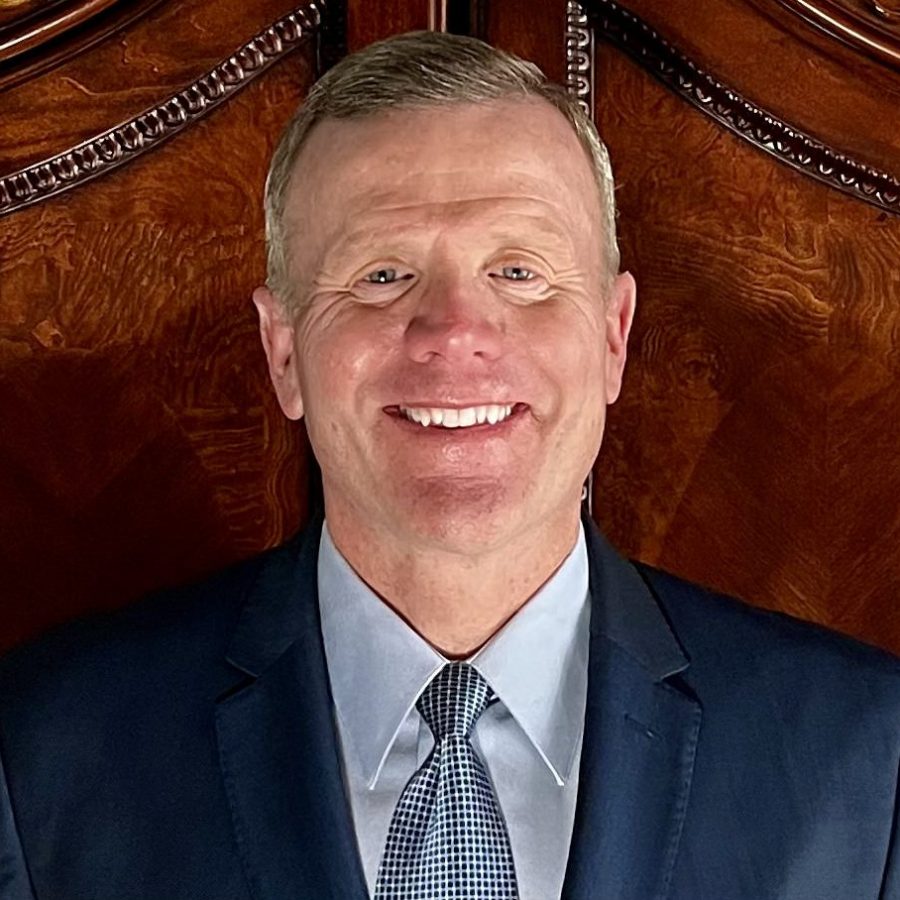
Keynote Speaker: General Tod Wolters (Ret.)
Supreme Allied Commander Europe and Commander, U.S. European Command, 2019-2022
In 2022, General Tod Wolters completed a distinguished 40-year active-duty career in the US Air Force as the Supreme Allied Commander Europe (SACEUR) and Commander of US European Command (EUCOM). As the SACEUR: he led Europe’s transition out of Afghanistan; ensured the COVID health crisis did not transform into a security crisis; and, led NATO’s military Allies and Partners through the largest invasion of a European nation since WWII. He united military activities alongside the leadership of all 30 NATO member nations and was instrumental in advancing the future transition of Sweden and Finland to NATO. In addition to commanding all European military forces, General Wolters worked closely with Presidents, Ambassadors, and Chiefs of Defense to improve the nation’s ability to defend and generate peace. His comprehensive approach dramatically improved the security disposition of the European continent.
Prior to General Wolters leadership position at NATO and EUCOM, he served as the Commander, of US Air Forces Europe, Commander of US Air Forces Africa, Commander of NATO Allied Air Command, and Director of Joint Air Power Competence Center from 2016 to 2019. General Wolters has also served as the Director of Operations of the US Joint Staff, Director of Operations of the US Air Force, Commander of 12th Air Force/Air Component Command US Southern Command, Director of Legislative Liaison/US Air Force, Deputy Commander of US and NATO Air Forces Afghanistan, Director of Operations US Air Force Space Command and as a Deputy Commander for Combined Security Assistance Command Afghanistan.
Additionally, General Wolters served in key leadership positions at the tactical, operational, and strategic levels of the United States military. These positions included command of three Tactical Air Wings, a Fighter Group, a Fighter Squadron, and staff positions at USAF Headquarters and US Pacific Command. General Wolters fought and commanded during Operation Desert Storm, Iraqi Freedom, Enduring Freedom (Afghanistan), and Southern Watch (Iraq).
General Wolters' awards and decorations include the Defense Distinguished Service Medal, the Distinguished Service Medal, the Defense Superior Service Medal, the Legion of Merit, the Bronze Star, and the Air Force Meritorious Service Medal. Additionally, General Wolters has over 5000 flight hours primarily in the F-15C, F-22, OV-10, T-38, and A-10 aircraft.
General Wolters graduated from the US Air Force Academy in 1982. His military education includes the US Air Force Fighter Weapons School, Air Command and Staff College, Armed Forces Staff College, and the US Army War College. General Wolters holds master's degrees from Embry-Riddle Aero Universityand the US Army War College. Additionally, General Wolters was a Senior Executive Fellow at the John F. Kennedy School of Government and Harvard University.
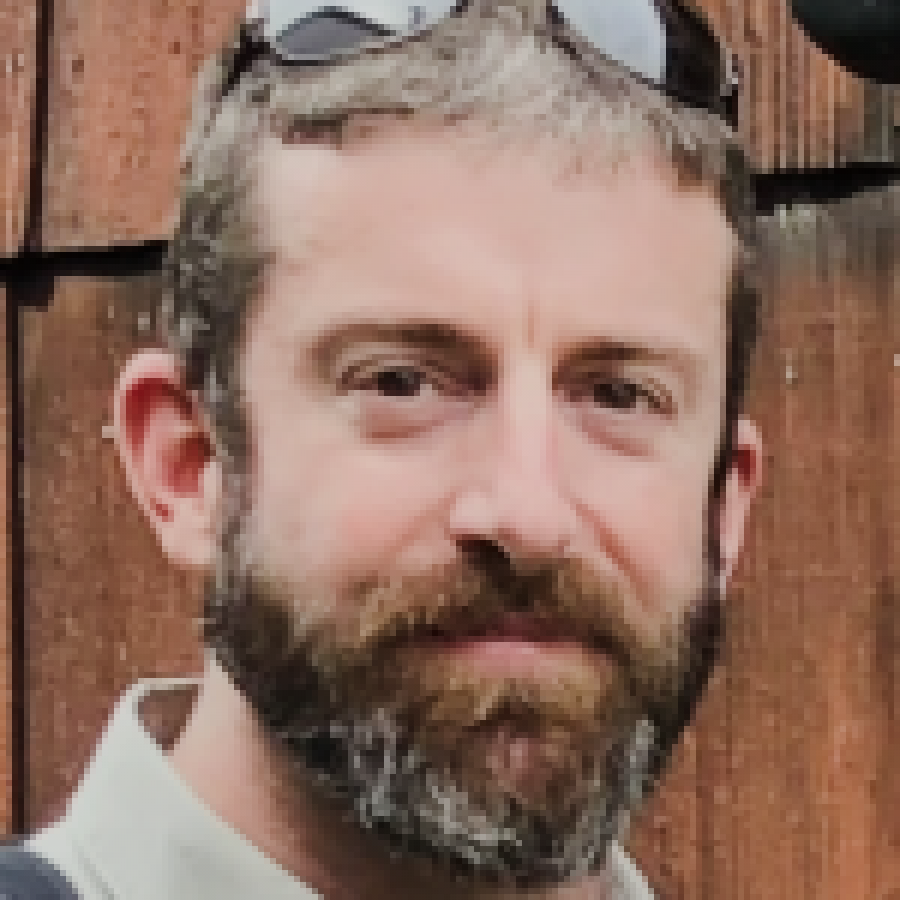
Speaker: Brett Goldstein
Special Advisor to the Chancellor, Vanderbilt University
Brett Goldstein is a disruptive innovator known for breaking bureaucratic silos across industries from the Department of Defense to Silicon Valley. He has provided counsel to Cabinet Secretaries and C-suite executives in a variety of content areas, including national security, finance, artificial intelligence, and data analytics. He is also an advisor to several early and mid-stage start-ups. Throughout his career, Goldstein has served in a range of mission-driven leadership roles across government, the private sector, and academia. He is deeply committed to improving government through data and technology.
Goldstein began his technology career at OpenTable, where he helped grow the company from an early-stage startup to a multinational corporation. Following the September 11, 2001, terrorist attacks, he joined the Chicago Police Department where he earned the rank of Commander. He became a leader in Chicago’s municipal government, serving as the first municipal Chief Data Officer in the nation, and later assuming the position of the city’s Chief Information Officer. In these roles, Goldstein was critical in leading successful efforts to use data and technology to improve the lives of Chicago-area residents. To accomplish this, he established one of the premier analytics programs in the country, accelerating Chicago’s growth as a global hub of innovation and technology.
Most recently, he served as the Director of the Defense Digital Service where he ran a team tasked with solving critical technical and national security issues facing the Department of Defense, reporting directly to the Secretary of Defense. He also served as Special Advisor to the United States Department of the Navy where he provided technical expertise on special projects, including overhauling the Navy’s personnel and manpower systems and infrastructure, developing data analytics and machine learning with Joint Special Operations Command (JSOC), and using commercial technology and algorithms to improve force protection for service members in Afghanistan as part of NATO’s Resolute Support Mission.
Goldstein also co-founded and served as Managing Partner of Ekistic Ventures, a venture capital fund dedicated to cultivating a portfolio of technology start-ups that bring new solutions to critical urban problems. Prior to his work at Ekistic, he served as the Chief Technology Officer of GCM Grosvenor, a global investment and advisory firm.
Academically, he has served as a Senior Fellow and Special Advisor for Urban Science at the University of Chicago, and as a Senior Advisor to the Pearson Institute for the Study and Resolution of Global Conflicts. He also held a fellow appointment at the Harvard Kennedy School of Government. He is currently a Special Advisor to the Chancellor at Vanderbilt University.
Goldstein holds a master's degree in Computer Science from the University of Chicago and a master’s degree in Criminal Justice from Suffolk University. He earned his bachelor's degree in Government from Connecticut College. He has received numerous recognitions and awards, and is a sought-after speaker in national and international forums. He lives in Wisconsin with his wife, three children, two dogs, and a fledgling hive of honey bees.
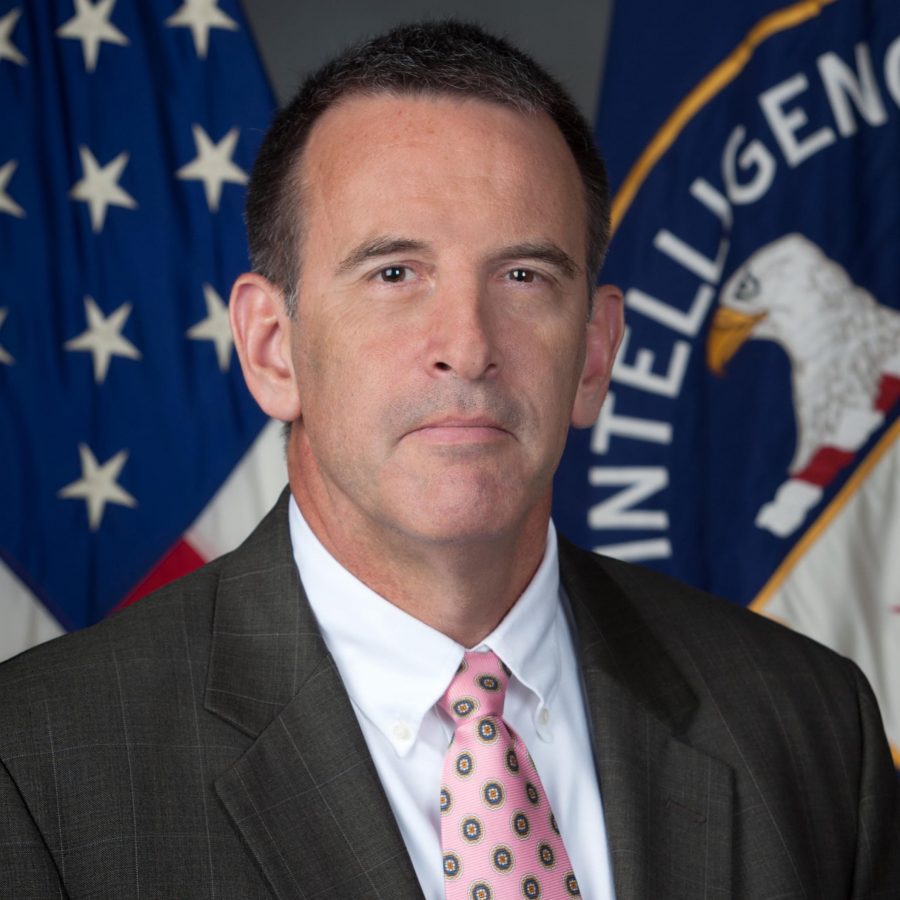
Speaker: Deputy Director David Marlowe
Deputy Director of Operations, Central Intelligence Agency
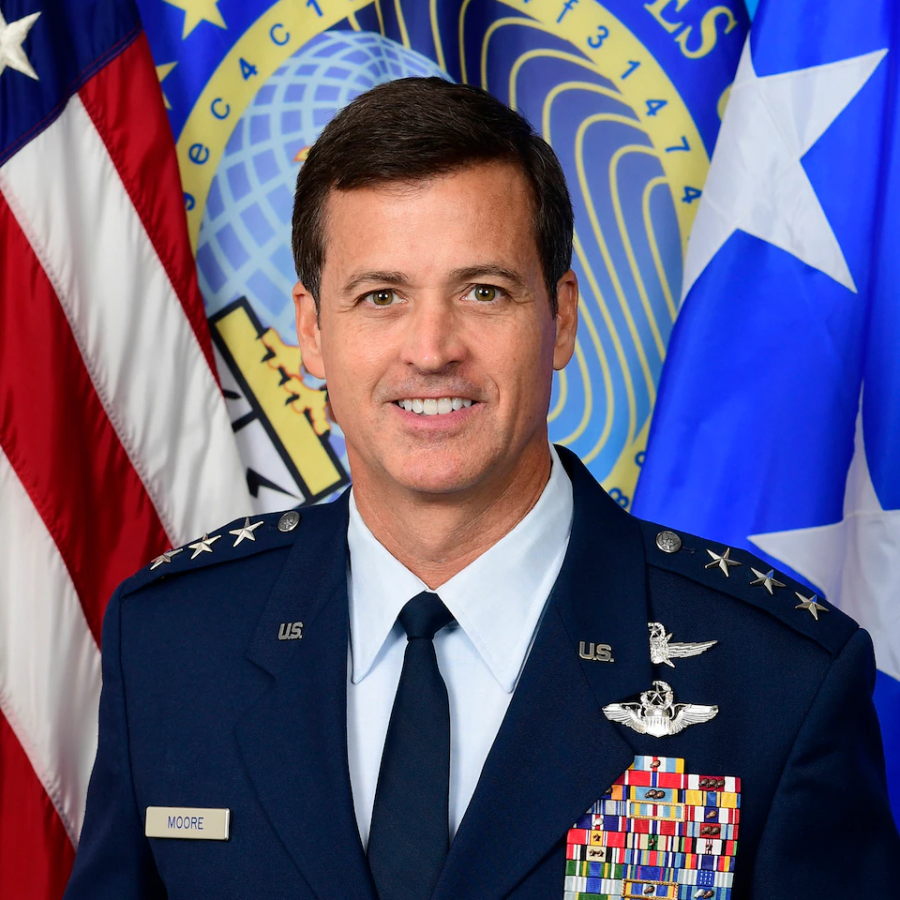
Summit Moderator and Panelist: Lieutenant General Charlie "Tuna" Moore (Ret.)
Distinguished Visiting Professor, Vanderbilt University; Former Deputy Commander, U.S. Cyber Command
Retired Lt. Gen. Charles L. Moore Jr. was the Deputy Commander, U.S. Cyber Command, Fort George G. Meade, Maryland from 2020 until 2022. USCYBERCOM directs, synchronizes and coordinates cyberspace planning and operations to defend and advance national interests in collaboration with domestic and international partners.
Lt. Gen. Moore was commissioned in 1989 after graduating from the U.S. Air Force Academy. He has served as an F-16 fighter pilot, instructor pilot, weapons officer, forward air controller and instructor at the U.S. Air Force Fighter Weapons School, Nellis Air Force Base, Nevada. His command experience includes the 555th Fighter Squadron, Aviano Air Base, Italy; 332nd Expeditionary Operations Group, Balad Air Base, Iraq; 20th Fighter Wing at Shaw AFB, South Carolina and the 57th Wing at Nellis AFB, Nevada. Prior to this position, Lt. Gen. Moore served as the Director of Operations, U.S. Cyber Command.
Lt. Gen. Moore is a command pilot with more than 3,000 hours in the F-16 and more than 640 hours of combat time.

Summit Moderator: Holly Tucker, Ph.D.
Director, Robert Penn Warren Center for the Humanities and Mellon Chair in the Humanities, Vanderbilt University
As Director of the Center for Humanities, Holly Tucker facilitates conversations, programs, and events for faculty and students working at the intersection of the Humanities, Social Science, and STEM. The Center hosts over 300 programs and events annually.
Tucker is an award-winning researcher and writer whose work focuses on cultural reception (and controversies) surrounding technological and biomedical innovation during Scientific Revolution.
Her work has been featured in Nature, The New York Times, The Economist, The Atlantic, Scientific American, NPR’s Science Friday, among others. At Vanderbilt, she is recipient of the Chancellor’s Award for Excellence in Research and the Ellen Gregg Ingall’s Award for Excellence in Undergraduate Teaching.
Her most recent books include Blood Work: A Tale of Medicine & Murder in the Scientific Revolution, which was a Los Angeles Times Book Prize finalist and a Times Literary Supplement best book of the year. The book explored the history of the first blood transfusions, which took place in the 1670s and were animal-to-human at a time when blood circulations was still a controversial “theory.”
City of Light, City of Poison: Murder, Magic, and the First Police Chief of Paris focused on poison, forensics, and organized crime in seventeenth-century Paris and the court of Louis XIV (the “Sun King”) at Versailles. The New Yorker called City of Light “an artful reconstruction of seventeenth-century Paris with riveting storytelling.”
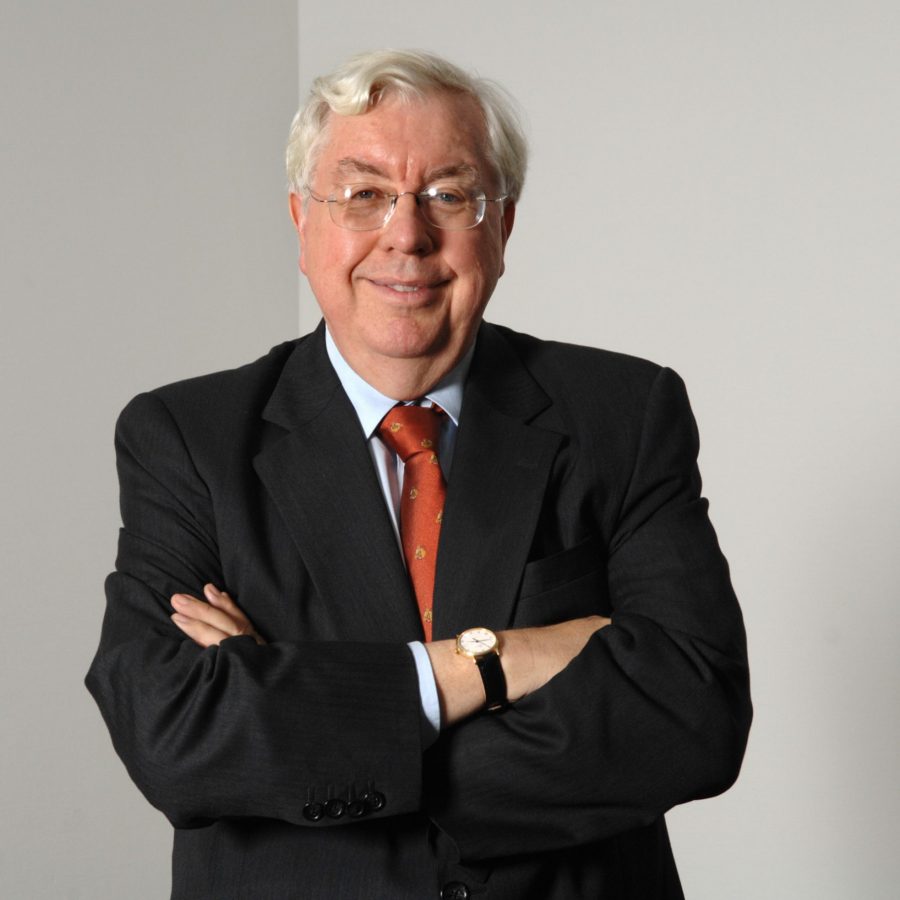
Speaker: Ambassador John Kornblum
Distinguished Ambassador in Residence, Vanderbilt University
For over five decades, Ambassador John Kornblum has played a unique role in Atlantic diplomacy and international business. Serving in numerous public and private capacities in Europe and the United States, he contributed directly to many of the decisive steps leading to the end of the Cold War and its follow-up., and as a private citizen has since 2001 written and spoken widely on the implications of the approaching digital world order.
As United States Minister and Deputy Commandant in divided Berlin in 1987, Mr. Kornblum conceived Ronald Reagan’s historic appearance at the Brandenburg Gate and penned the immortal phrase “Mr. Gorbachev tear down this wall.” He later served as deputy United States representative to NATO in Brussels and as the first US Ambassador to the Organization for Security and Cooperation in Europe in Helsinki and Vienna. As Assistant Secretary for Europe in the US Department of State, Ambassador Kornblum was the deputy negotiator of the Dayton Peace Agreement, and followed as US special envoy to the Balkans, where he was responsible for putting the peace arrangements agreed at Dayton into force.
Concurrently, Ambassador Kornblum directed American policy for enlargement of NATO and the European Union, and was one of the main negotiators of the post-Cold War settlement with Russia in 1997. As Ambassador to the Federal Republic of Germany from 1997 – 2001, he moved the Embassy from Bonn to Berlin where it reopened for the first time in 58 years, and worked closely with Germany’s new Social Democratic-Green Government to facilitate the Federal Republic’s first German combat engagement since 1945 as part of NATO’s 1999 military action against Serbia. Upon conclusion of his diplomatic career in 2001, Ambassador Kornblum served as chairman for Central Europe of the investment bank Lazard Freres from 2001-2009. For the next 13 years he was Senior Counselor at the international law firm Noerr LLP in Berlin, and fulfilled numerous board memberships and advisory mandates with several international companies and non-profit organizations. Ambassador Kornblum is a regular contributor to news organizations in the United States and in Europe and is widely recognized as an authority on the consequences of the impending digital world.
Ambassador Kornblum lives with his wife Helen Sen Kornblum in Berlin and Nashville, TN. Two grown sons also live in Germany and Tennessee.

Speaker and Panelist: Yeonmi Park
North Korean Defector and Human Rights Activist
Born in North Korea, human rights activist and TED Speaker Yeonmi Park grew up in a punishing society devoted to the worship of Kim Jong-Il. But at the age of 13, she and her family made a daring escape to China in search of a life free of tyranny. In her viral talks, viewed online nearly 350 million times, Park urges audiences to recognize—and resist—the oppression that exists in North Korea, and around the world.
Growing up in Hyesan, North Korea, it was normal for Park to see dead bodies as she walked to school, and to be so hungry that she ate wild plants. After watching a pirated copy of Titanic, the veil of tyranny began to fall. Having caught a glimpse of a free world, Park realized that her experience of life wasn’t the only one—and that she might one day find a way out. In 2002, Park’s family suffered a crucial blow when her father was arrested and sent to a prison camp for engaging in “illegal trading”—selling materials that no one would be punished for in a free society. In 2007, Park’s sister escaped with a friend before she and her mother followed her to China. But before they could locate her, Park and her mother were sold separately to Chinese human traffickers. In 2009, Park and her mother crossed the Gobi Desert to Mongolia from China in -40-degree weather, finding their freedom in South Korea. She recounts this incredible story in her searing memoir In Order to Live: A North Korean Girl’s Journey to Freedom, and in the insightful, moving talks based on her experiences.
An insightful and candid speaker, Park is fast becoming a leading voice of oppressed people around the world. At the Oslo Freedom Forum and the One Young World Summit in Dublin, she became an international phenomenon, delivering passionate and deeply personal speeches about the brutality of the North Korean regime. Her address to One Young World on the horrors of detention camps, political executions, and sex trafficking has been viewed over 320 million times. The BBC named Park one of their “Top 100 Global Women.”
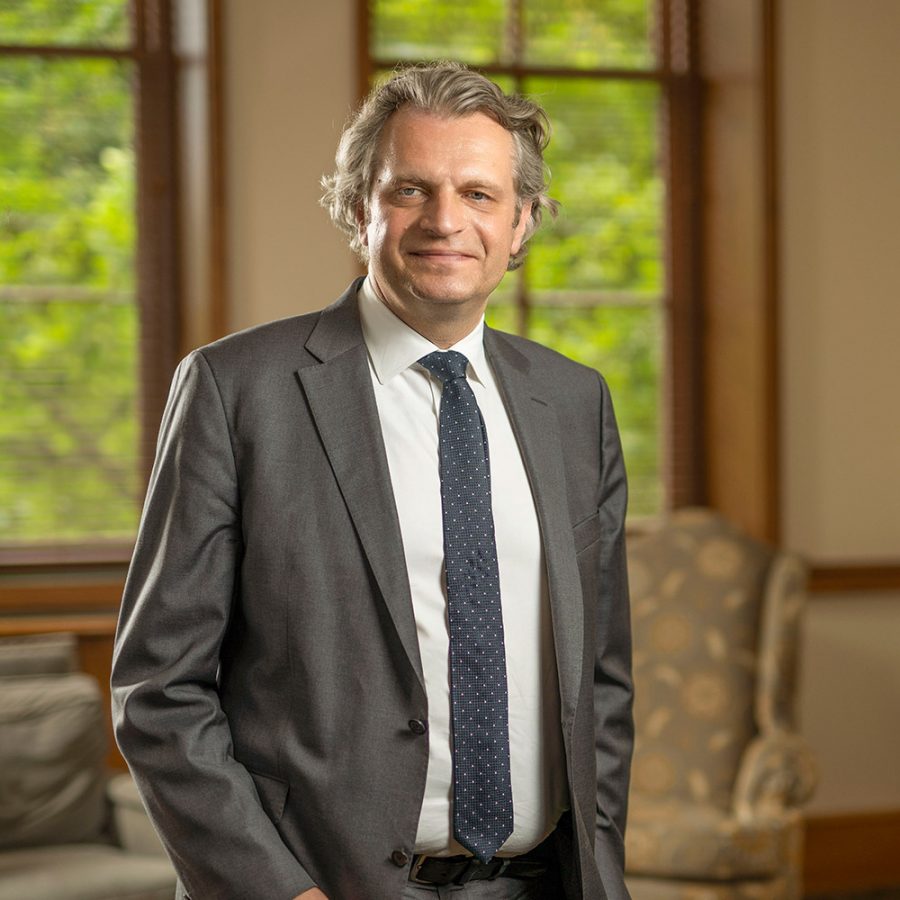
Speaker: Chancellor Daniel Diermeier, Ph.D.
Chancellor of Vanderbilt University
A visionary leader and internationally renowned political scientist and management scholar, Daniel Diermeier is the ninth chancellor of Vanderbilt University.
Since joining Vanderbilt in 2020, Chancellor Diermeier has led an ambitious program of advancement and growth. During his tenure, the university has risen in stature, successfully launched a major capital campaign for Vanderbilt athletics, topped the $1 billion mark in research expenditures and reaffirmed its long-standing commitment to free expression and civil discourse. He has driven efforts to become the destination for leading faculty and the most promising students, to create a culture of radical collaboration and personal growth for Vanderbilt’s faculty, students and staff and to expand Vanderbilt’s global presence. Under his leadership, Vanderbilt was one of a very small number of the nation’s universities to safely and successfully bring students back to campus and stay fully operational during the COVID-19 pandemic.
He is a fellow of the American Academy of Arts and Sciences and the Guggenheim Foundation. He has published five books and more than 100 research articles, mostly in the fields of political science and economics and management, but also in other fields, including linguistics, sociology, psychology, computer science, operations research and applied mathematics.
Before arriving at Vanderbilt, Chancellor Diermeier served in leadership and faculty roles at the Stanford Graduate School of Business, the Kellogg School of Management at Northwestern University and at the University of Chicago, where he served as dean of the Harris School of Public Policy.
From 2016 until 2020, he was the University of Chicago’s provost, responsible for all academic and research programs across the university, as well as oversight of the university’s $5 billion budget.
Throughout his career, Diermeier has been an adviser to governments, nonprofits and leading companies, mostly in the area of crisis management. He has served on the boards of several nonprofit organizations, technology companies and the Management Board of the Federal Bureau of Investigation. He is a board member of Vanderbilt University Medical Center, the Field Museum and Argonne National Laboratory.
A native of Berlin, Germany, and a first-generation college graduate, Diermeier earned a Ph.D. and a master’s degree in political science from the University of Rochester. He also holds master’s degrees in political science from the University of Munich and in philosophy from the University of Southern California.
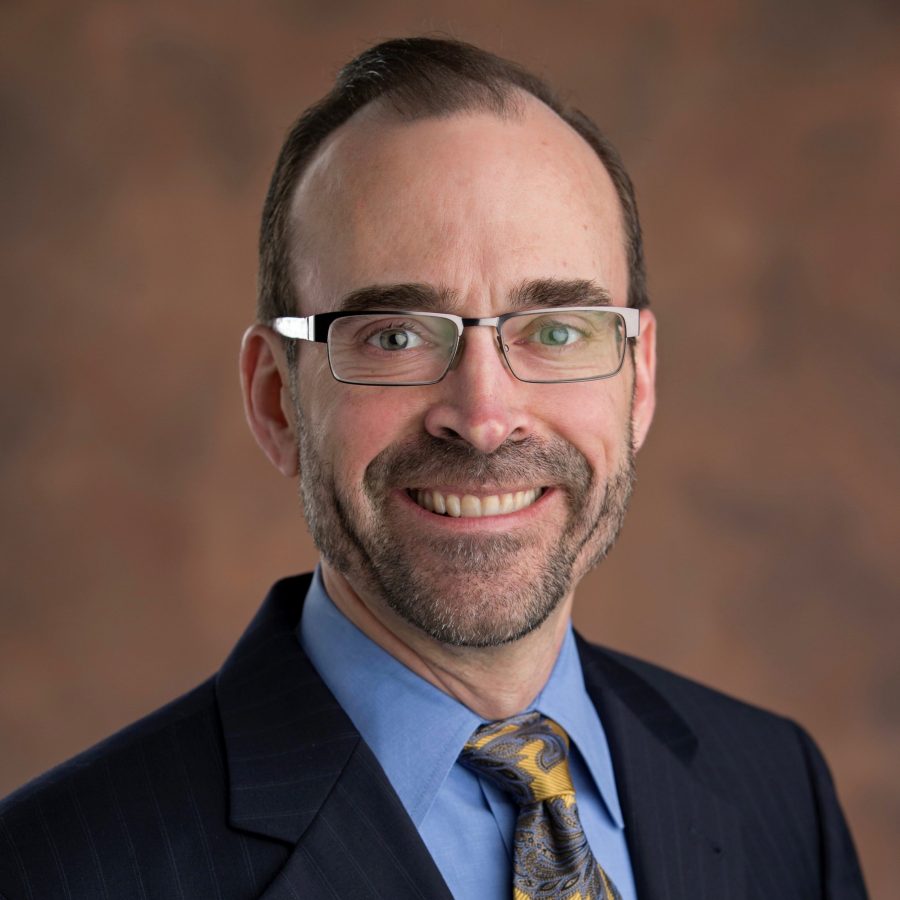
Session Chair: Douglas Adams, Ph.D.
Vice Dean of Engineering, Associate Provost, Daniel F. Flowers Professor of Engineering, Distinguished Professor of Civil and Environmental Engineering, and Professor of Mechanical Engineering, Vanderbilt University
Adams is Fellow of the American Association for the Advancement of Science, the American Society of Mechanical Engineers, and the Society for Experimental Mechanics and has received awards including the Presidential Early Career Award for Scientists and Engineers, the DeMichele Award and Lazan Award from Society for Experimental Mechanics, a Technical Medal of Achievement from US Army Stryker Combat Brigade, and Commander’s Award from US Navy Air Warfare Center.
As Associate Provost he leads a university-wide initiative in Soldier-inspired innovation supporting a multidisciplinary team of researchers across Vanderbilt University and University of Tennessee who collaborate on technological solutions for Soldiers with units at Fort Campbell in the 101st Airborne Division, 160th Special Operations Aviation Regiment, and 5th Special Forces Group. Researchers are developing technologies that address the tactical needs of Soldiers while impacting the Army’s strategic capabilities. Technologies that have been demonstrated and are being transitioned for use by military personnel include smart radios for improved communications in contested environments and lightweight exosuits for preventing back injuries.
Adams has published 275 papers, a textbook, and 6 book chapters in his research, which utilizes advanced sensing technologies and data analysis strategies for monitoring the health of machines in defense, energy, and manufacturing applications. His research has contributed directly to the enhanced performance and reliability of military ground vehicles, aircraft, satellites, body armor, helmets, and other systems, and he has deployed technology to safeguard military personnel. He serves as a Technical Fellow for the $259M US Department of Energy Composites Institute focused on innovations across the manufacturing supply chain for next-generation materials in partnership with Oak Ridge National Lab and over 130 industry partners. He has supervised 59 graduate students and advised 61 undergraduate researchers and has won awards for classroom and online teaching. And he has secured 11 patents and over 130 industry contracts and federal grants for ~$40M in funding.
Prior to joining Vanderbilt university in 2013, Adams was research center director and professor of engineering at Purdue University where he was named a University Faculty Scholar and elected to the Purdue Book of Great Teachers.
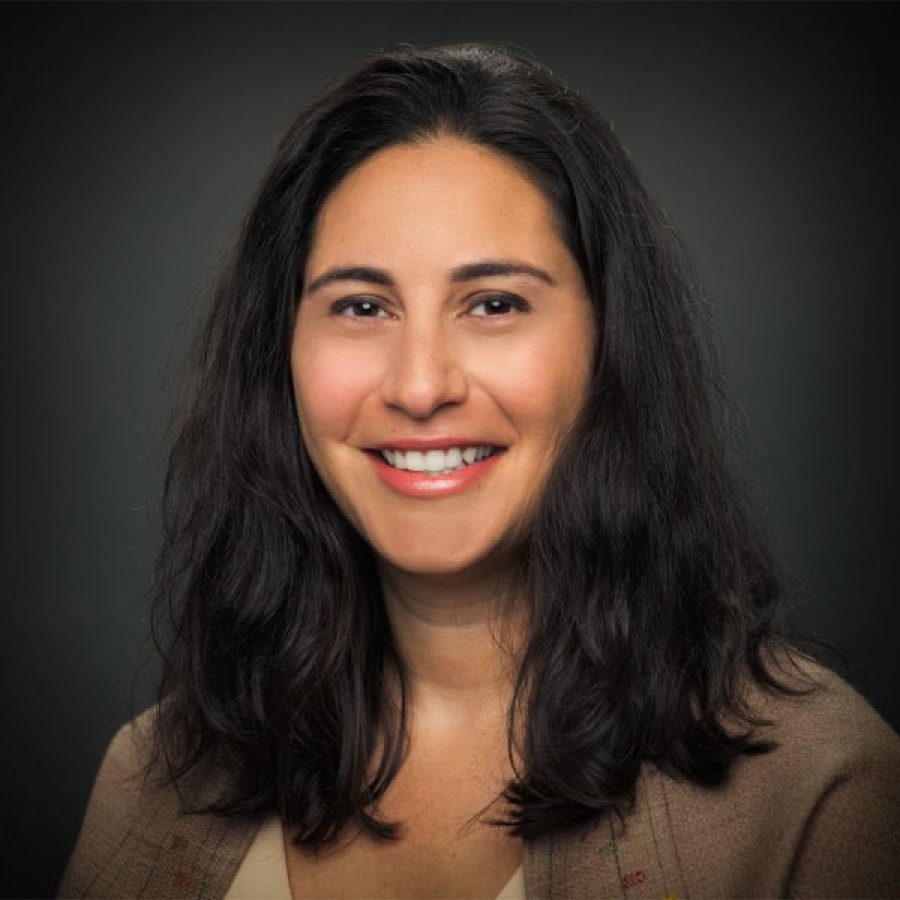
Panelist: Samar S. Ali
Research Professor of Political Science and Law, Vanderbilt University; Founding President and CEO, Millions of Conversations
Samar S. Ali engages in some of the most entrenched conflicts of our time, always with the intent of finding positive resolution through common ground. Ali is a Research Professor of Political Science and Law at Vanderbilt University, the founding President and CEO of Millions of Conversations.
Ali served as a White House Fellow in President Obama’s administration and as Assistant Commissioner of International Affairs in Tennessee Governor Bill Haslam’s administration. Ali is a Young Global Leader with the World Economic Forum, and a term member of the Council on Foreign Relations.
She received her JD and BA in Political Science from Vanderbilt University, where she specialized in foreign policy. Her work has been featured in the New York Times, TIME, the Wall Street Journal, Politico, USA Today, the Washington Post, The Hill, and Foreign Affairs as well as the BBC, NPR, PBS, and MSNBC.
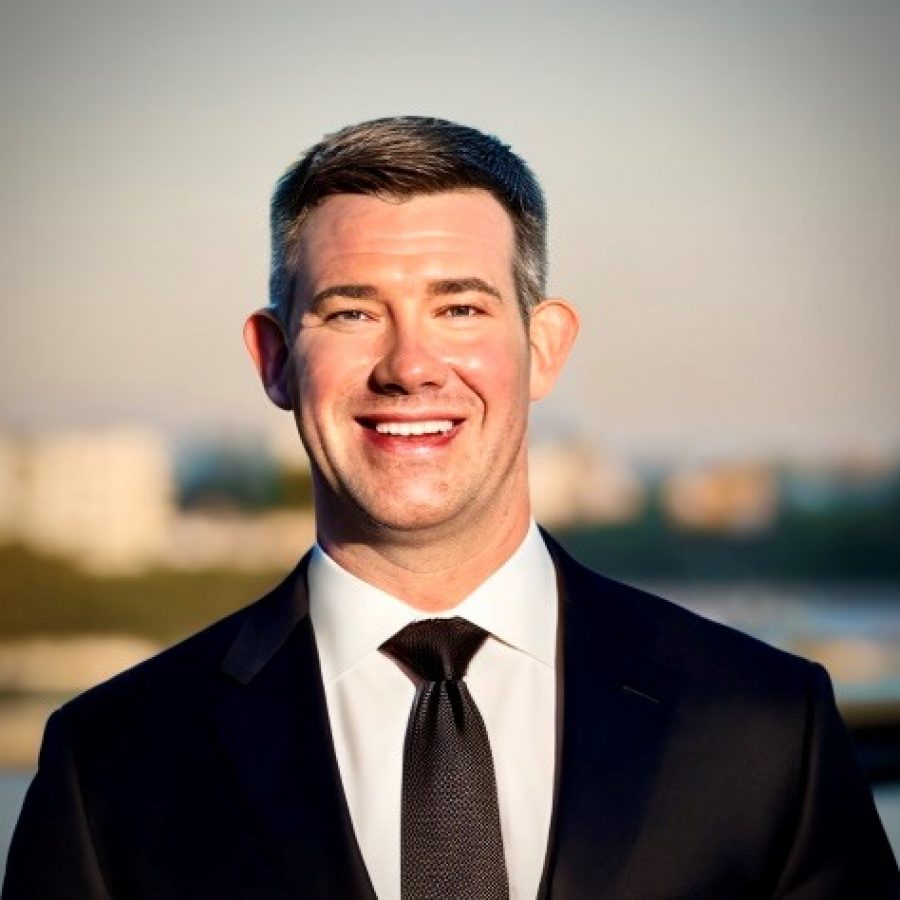
Panelist: Rob Bair
Executive Director at Team Cymru
Robert (Rob) Bair is Executive Director at Team Cymru, a cyber security and threat intelligence firm providing comprehensive visibility into global cyber threats. Prior to Team Cymru, he served twenty years as an officer in the United States Navy.
His most recent military assignment was as the Director for Cybersecurity and Operations Policy at the National Security Council. He previously served as a Director for Intelligence Programs at the National Security Council. Rob completed multiple tours at the National Security Agency, U.S. Cyber Command, and Fleet Cyber Command / TENTH Fleet with experience in both offensive and defensive cyber operations. He served in several intelligence and counterterrorism assignments, including the national counter-narcotics detection and monitoring task force, and deploying to Afghanistan with a Joint Special Operations Task Force. He began his naval career as a submarine officer serving aboard the USS TENNESSEE (SSBN 734 Blue). Rob served as the miliary aide to the Deputy Chief of Naval Operations for Fleet Readiness and Logistics (N4) and Deputy Chief of Naval Operations for Warfare Systems (N9) and was the Executive Assistant to the Commander, Fleet Cyber Command / TENTH Fleet.
He is a graduate of Carnegie Mellon University and holds M.S. in Engineering Management from Old Dominion University; M.S. in Information Systems and Operations from the Naval Postgraduate School; M.S. in Defence Systems Engineering from the National University of Singapore; and a Master of Business Administration (MBA) from Massachusetts Institute of Technology (MIT) Sloan School of Business. He is a former term member at the Counil on Foreign Relations (CFR), Defense Advanced Research Projects Agency (DARPA) Service Chiefs Fellow, and Navy Tours with Industry Fellow at Splunk. He is a Venture Capital Fellow at Forgepoint Capital and a former Venture Fellow at TFX Capital.
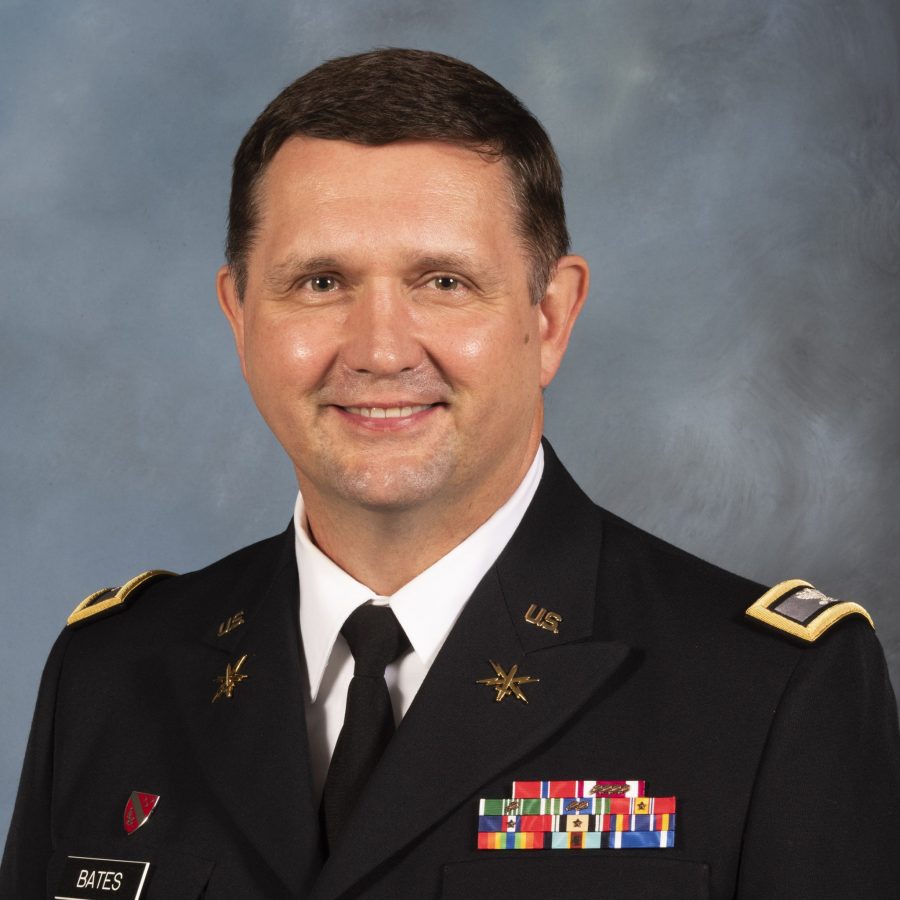
Panelist: Colonel Chad Bates, Ph.D.
Associate Professor in the Center for Strategic Leadership (CSL), U.S. Army War College
Colonel Chad Bates is an Associate Professor within the Center for Strategic Leadership (CSL) at the U.S. Army War College. He is responsible for teaching lessons on Cyber, Electromagnetic Spectrum Operations, and Information Advantage for Army War College students and classes at the NATO Cooperative Cyber Defence Centre of Excellence. In addition, he also serves as a subject matter expert in support to Joint and Army wargames and conducts research on recruiting and retaining a highly technically trained workforce.
COL Bates is a 1995 graduate of the United States Military Academy at West Point, NY and earned his PhD in Geospatial Information Science from George Mason University. Prior to the Army War College, he served at U.S. Army Cyber Command where he was responsible for completing the build of the last Army cyber teams and led the effort to create a readiness system for these teams with U.S. Cyber Command. Additionally, he led to effort to improve the training and qualification standards for Cyber Personnel and establishing a Talent Management program for these highly technically trained personnel.
Prior to becoming a Cyber Officer, he served as a Modeling and Simulation expert within the Deputy Chief of Staff for Intelligence (G-2) at the headquarters of the U.S. Army in the Pentagon. Previous to this assignment he served as the deputy operations officer for the 10th Mountain Division.

Panelist: CAPT Joseph Benin, USCG, Ph.D., PE
Professor of Electrical Engineering and Cyber Systems, U.S. Coast Guard Academy
CAPT Benin is the Program Coordinator of the Cyber Systems major at the U.S. Coast Guard Academy and chief architect of the program. He is also the Chair of the USCGA Superintendent’s Council for Cyber Education and Training.
CAPT Benin graduated in 2001 with a Bachelor of Science in Electrical Engineering with High Honors from the U.S. Coast Guard Academy (New London, CT), having served as the Regimental Honor Officer and Chairman of the Cadet Standards of Conduct Board. He then served as the Electrical and Electronics Officer aboard the icebreaker USCGC HEALY (WAGB-20) while completing his Engineer-Officer-In-Training (EOIT) qualifications. In 2003, he began graduate studies at the Georgia Institute of Technology, was selected as an adjunct MacArthur Fellow, and ultimately earned a Master of Science degree in Electrical and Computer Engineering and a Master of Science degree in Information Security. In 2005, he began teaching at USCGA and was selected as a member of the Permanent Commissioned Teaching Staff (PCTS). He successfully defended his dissertation and graduated with a Ph.D. in Electrical and Computer Engineering in 2012 and presently focuses on the areas of computer networks, programming, and security. He has taught over 15 different courses at CGA to over 1200 cadets spanning 15 years in the classroom. Dr. Benin has previously served as the Director of Academic Advising and is a member of IEEE and ASEE.
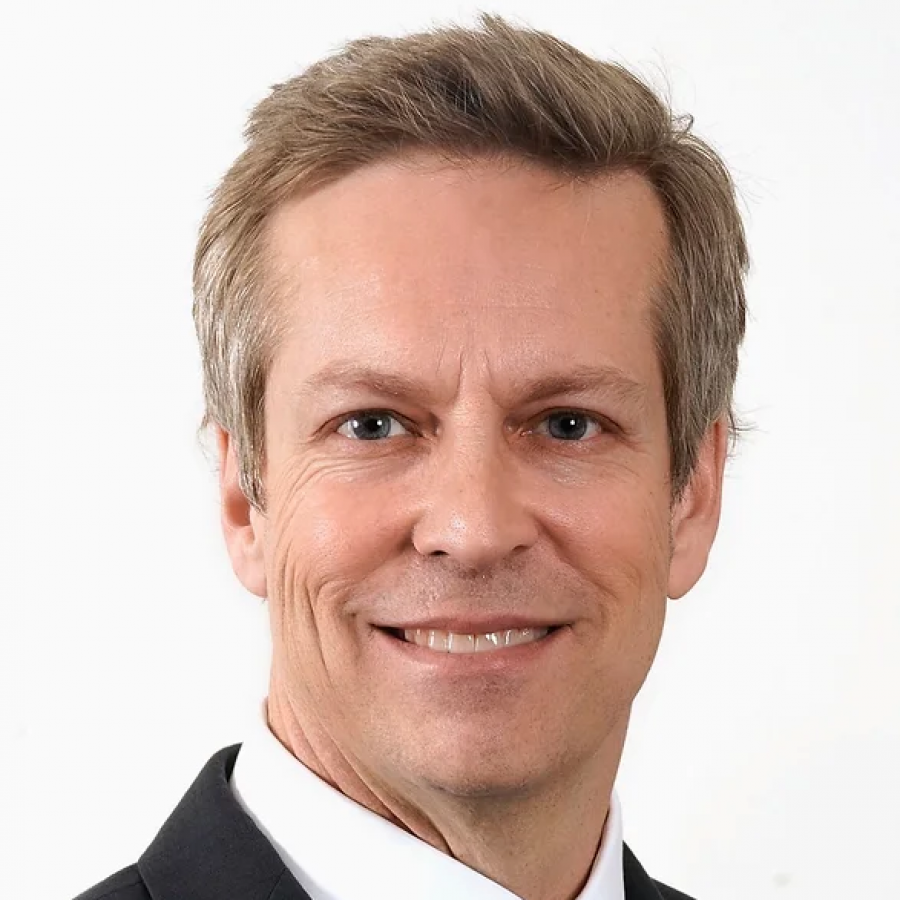
Session Chair: Brett Benson, Ph.D.
Associate Professor of Political Science and Asian Studies, Vanderbilt University
Brett V. Benson is an Associate Professor of Political Science and Asian Studies at Vanderbilt University. His research interests lie in the areas of international politics, international relations of East Asia, and the political economy of armed conflict. His research focuses on military alliances, economic interdependence, and the global trade in small arms and light weapons. He is currently studying China’s policies toward the Taiwan Strait issue and the political and economic strategies that delay resolution and buy time for Taiwan. He is also working on a project that analyzes the role of military alliances such as NATO and alliances in East Asia in the escalation and deterrence of armed conflict. He is the author of Constructing International Security: Alliances, Deterrence, and Moral Hazard (Cambridge University Press, 2012). His research appears in multiple journals including the American Journal of Political Science, Journal of Politics, Journal of Conflict Resolution, Journal of Peace Research, Journal of East Asian Studies, and Security Studies. His research has been featured in Washington Post, The New York Times, Politico, Newsweek, U.S. News and World Report, Chronicle of Higher Education, LA Times, and The Tennessean. He has received fellowships from the East-West Center and the Princeton University Program for Quantitative and Analytical Political Science.
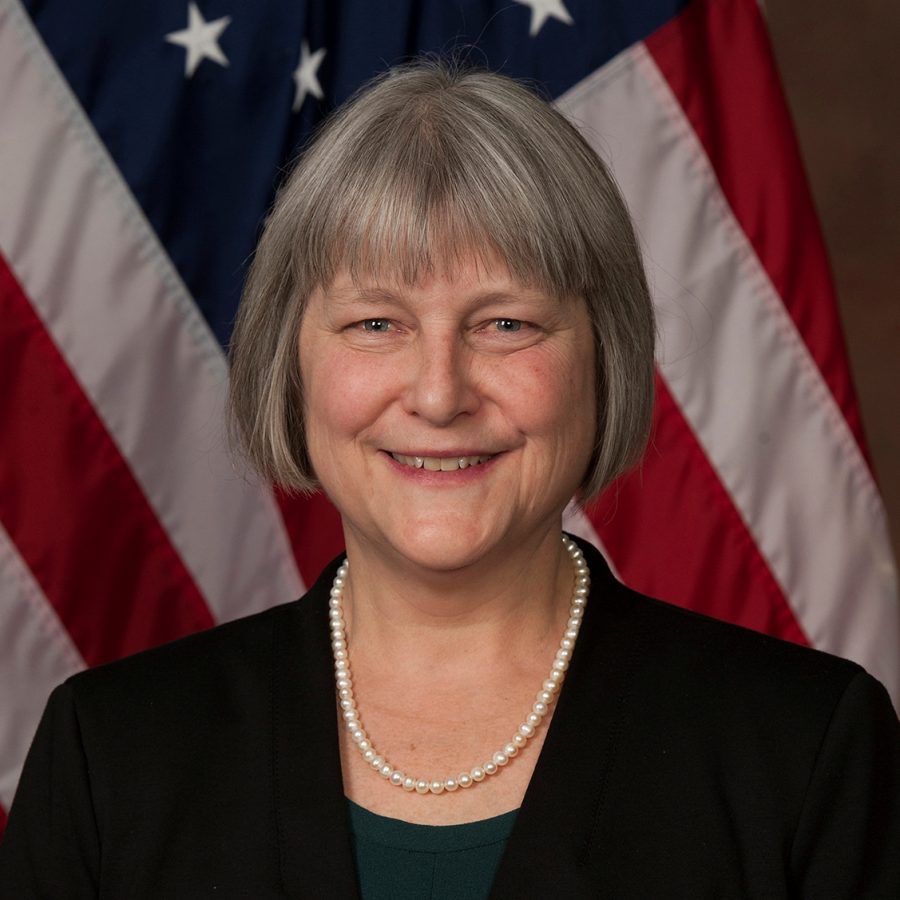
Panelist: Jean R. S. Blair, Ph.D.
EECS Distinguished Professor for Innovation and Professor of Computer Science, United States Military Academy
Jean R. S. Blair is the EECS Distinguished Professor for Innovation and a Professor of Computer Science at the United States Military Academy. She currently serves as the Chair of the Computing Accreditation Commission of ABET, the global accreditor of over 4,000 college and university programs in applied and natural science, computing, engineering, and engineering technology.
Blair was a founding member of the Steering Committee for the Cyber Education Project, a grassroots initiative to develop undergraduate curriculum guidelines and a case for accreditation of educational programs in the Cyber Sciences. She helped develop ABET accreditation criteria for Cybersecurity programs and more recently for Data Science programs.
Previous positions held at the United States Military Academy include deputy to the Chief Academic Officer, director of the Computer Science Program, and director of the Information Systems Engineering Program. While on sabbatical, she served as visiting professor and senior research scientist at the University in Bergen, Norway. Before joining the USMA faculty, Blair spent eight years on the faculty at the University of Tennessee and worked at Oak Ridge National Laboratory as a research scientist.
In addition to her 24 years of service to ABET, she volunteers as an accreditation team member for the Middle States Commission on Higher Education, has been active in local and regional leadership of the Institute of Electrical and Electronics Engineers (IEEE), was a member of the editorial board for the Journal of Computing and Information, and was a guest editor for Discrete Mathematics.
Blair is a senior member of IEEE, a senior member of the Association for Computing Machinery, a member of the Society for Industrial and Applied Mathematics, and a member of the American Society of Engineering Education. She is a member of the international honor society for the computing and information disciplines – Upsilon Pi Epsilon, the international honor society in social sciences – Pi Gamma Mu and was an Alden Scholar at Allegheny College.
Blair earned Ph.D. and M.S. degrees in Computer Science from the University of Pittsburgh and a B.S. degree from Allegheny College. Her research focuses on the design and analysis of algorithms, with recent emphasis on graph algorithms and curricular design for emerging computing disciplines.

Panelist: Thomas A. Campbell, Ph.D.
Co-Director, LEAP Manufacturing; Founder & CEO, FutureGrasp
Dr. Thomas A. Campbell — globally recognized senior analyst and researcher in emerging and disruptive technologies — is the Founder & CEO of FutureGrasp, which advises organizations on trends and implications of emerging technologies; and the Co-Director of LEAP Manufacturing, a national consortium of leading experts and organizations in the energy and batteries sector with the goal to be the leading force for accelerating advanced energy systems. He is also a Special Advisor to BootstrapLabs (a leading Venture Capital firm based in Silicon Valley focused on Applied Artificial Intelligence), a Senior Fellow with the Council on Competitiveness (Washington, D.C.), a Member of the Board of Advisors of the Global TechnoPolitics Forum (Canoga Park, CA), and a Member of the Board of Advisors of VoiceBrain (San Francisco, CA).
From February 2015 to August 2017, Tom was the first National Intelligence Officer for Technology (NIO/TECH) with the National Intelligence Council (NIC) in the Office of the Director of National Intelligence (ODNI). As NIO/TECH, he served as the focal point within the ODNI for all activities related to emerging and disruptive civil technologies. With his team (deputy NIO/TECH and others on assignments) and in collaboration with other NIOs and government agencies, he drafted, coordinated reviews of, and briefed a broad portfolio of intelligence products for senior policymakers—including senior directors in the National Security Council, senior staff of the Office of Science & Technology Policy (OSTP), members of the House and Senate, and senior ranking officers within the Department of Defense.
Prior to his government service, Tom was Research Associate Professor and Associate Director for Outreach with the Institute for Critical Technology and Applied Science (ICTAS) at Virginia Tech. He led corporate outreach and facilitated large, multi-principal investigator (PI) program and proposal developments in interdisciplinary areas. He built a research lab from scratch and performed fundamental research on nanomaterials and 3D- and 4D-printing, culminating in the 2014 Outstanding Paper award in the top journal in the field. Tom was a Senior Fellow (Non-resident) with the Strategic Foresight Initiative of the Atlantic Council in Washington, D.C. for almost two years.
Tom’s industry experience covers both small business and large corporations. He worked three years at ADA Technologies, Inc., where he led proposal concept, writing, and project execution. For five years, Tom was a Research Scientist at Saint-Gobain Crystals (part of the French Fortune 100 company Saint-Gobain), where he was PI and R&D Project Leader during a $13 million dollar expansion project for optical microlithography materials processing.
Tom is a recipient of the Alexander von Humboldt Research Fellowship, granted to global researchers for postdoctoral research in Germany. Living in Freiburg, Germany for 16 months, he executed all his research in the German language. He developed and implemented novel experimental studies of interfacial kinetics and crystal characterizations of germanium-silicon compounds. Following his return to the United States, he was a Member of the Board of Directors of the American Friends of the Alexander von Humboldt Foundation and Chair of its Strategic Planning Standing Committee.
Tom holds a Ph.D. in Aerospace Engineering Sciences from the University of Colorado at Boulder. His research was funded under a three-year NASA Graduate Student Researcher Program Fellowship. Tom holds a B.E. in Mechanical Engineering (Magna Cum Laude, Honors in Mechanical Engineering) from Vanderbilt University.
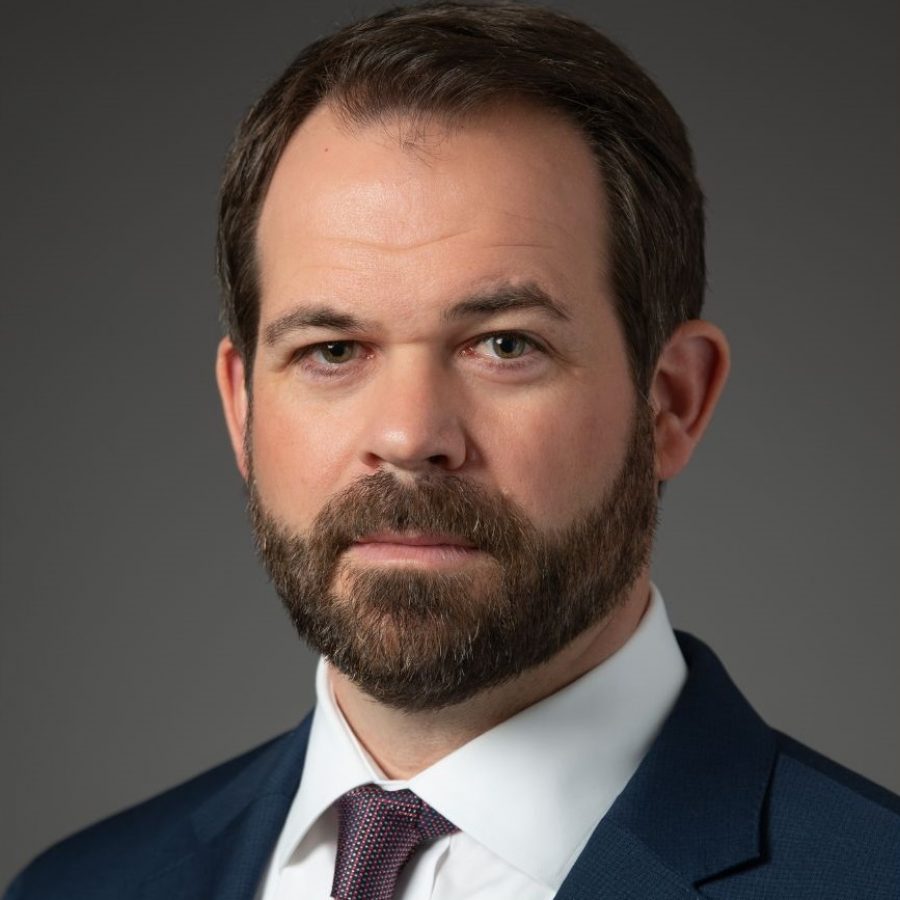
Panelist: Eric Chewning
Executive Vice President of Strategy and Development, HII
Eric D. Chewning is Executive Vice President of Strategy & Development for HII, an all-domain defense and technologies partner and America’s largest shipbuilder.
Eric was named to the position in January 2023. He has over 20 years of experience across government and industry working issues at the intersection of national security, technology, and business.
Prior to joining HII, he co-led McKinsey & Company’s Aerospace & Defense practice in the Americas.
While in government, Eric was the Chief of Staff to the U.S. Secretary of Defense. In this role he led the Secretary’s executive team, working across the military services, Joint Staff, Combatant Commanders, and senior civilian political appointees. He also provided counsel and advice to the Secretary on all matters concerning the Department. Prior to serving as the Chief of Staff, Eric was the Deputy Assistant Secretary of Defense for Industrial Policy. In this capacity, he was the principal advisor for analyzing the capabilities, policies, and overall health of America’s defense industrial base.
A former U.S. Army military intelligence officer, he is a veteran of Operation Iraqi Freedom. Prior to his military service, Eric was an investment banker at Morgan Stanley & Co. where he focused on corporate finance and mergers & acquisitions in the global industrials sector.
Eric received a MBA from the Darden School of Business at the University of Virginia where he was recognized as a Shermet Scholar. He also earned a MA in international relations and BA with honors from the University of Chicago. He is a life member of the Council on Foreign Relations.
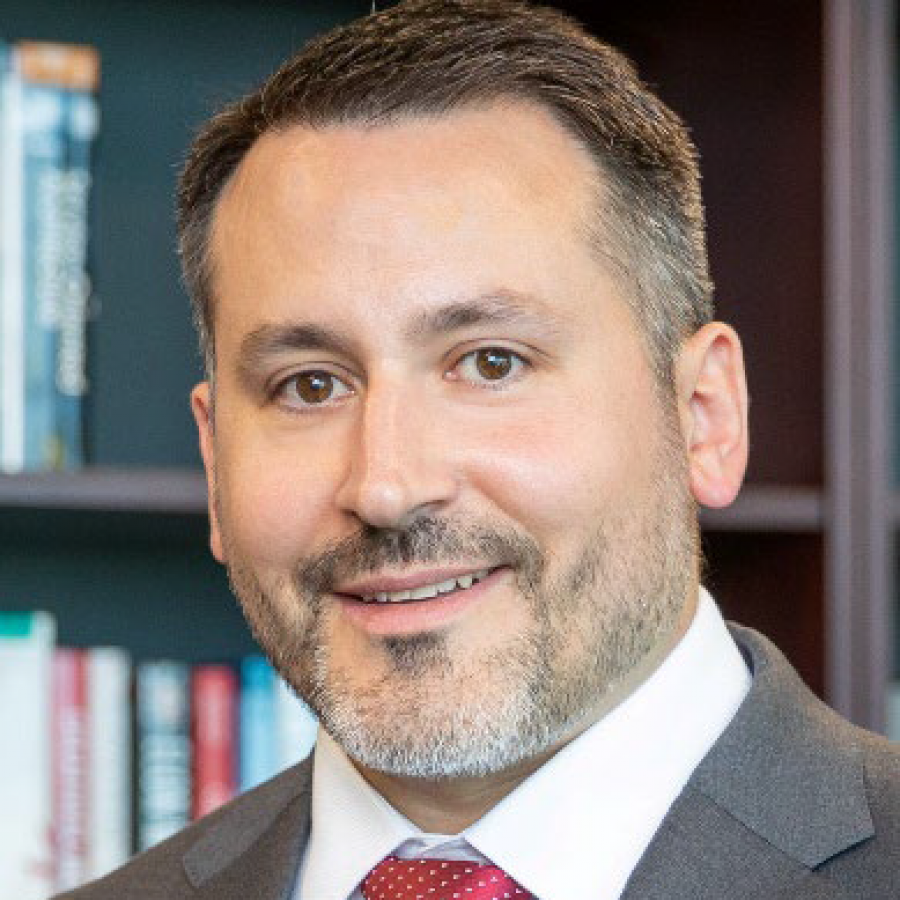
Panelist: Charles Clancy, Ph.D.
Senior Vice President, General Manager, MITRE Labs, Chief Futurist
Charles Clancy is a senior vice president at MITRE and heads MITRE Labs. Over 4,000 MITRE Labs scientists, technologists, and engineers deliver deeply technical capabilities and solutions to the six federally funded R&D centers MITRE operates on behalf of the U.S. government. They also serve the MITRE’s other federal, non-profit, and private sector customers. In addition, Clancy serves as MITRE’s Chief Futurist, working to realize a future where emerging technology is democratic, sustainable, and equitable.
Before joining MITRE in 2019 as vice president for intelligence programs, Clancy served as the Bradley Distinguished Professor of Cybersecurity in the Department of Electrical and Computer Engineering at Virginia Tech and executive director of the Hume Center for National Security and Technology. There, he led Virginia Tech’s research and experiential learning programs in defense and intelligence. He started his career at the National Security Agency, filling a variety of research and engineering roles, with a focus on wireless communications.
He was named a Fellow of the Institute for Electrical and Electronics Engineers (IEEE) for his work in information security and digital communications and elected a member of the Virginia Academy of Science, Engineering, and Medicine. He has co-authored more than 250 academic publications and patents, as well as six books. He co-founded five venture-backed startup companies that apply commercial innovation to the intersection of telecommunications and national security.
Clancy sits on the AFCEA International Board of Directors’ Executive Committee, the AFCEA Intelligence Committee, the Systems Engineering Research Center Advisory Board, the Alliance for Telecommunications Industry Solutions Next G Alliance, and the Center for New American Security Task Force on Artificial Intelligence and National Security. He also serves on academic advisory boards at Howard University, Norfolk State University, North Carolina A&T State University, and Virginia Tech.
Clancy holds a bachelor’s degree in computer engineering from the Rose-Hulman Institute of Technology, a master’s degree in electrical engineering from the University of Illinois at Urbana-Champaign, and a doctorate in computer science from the University of Maryland, College Park.
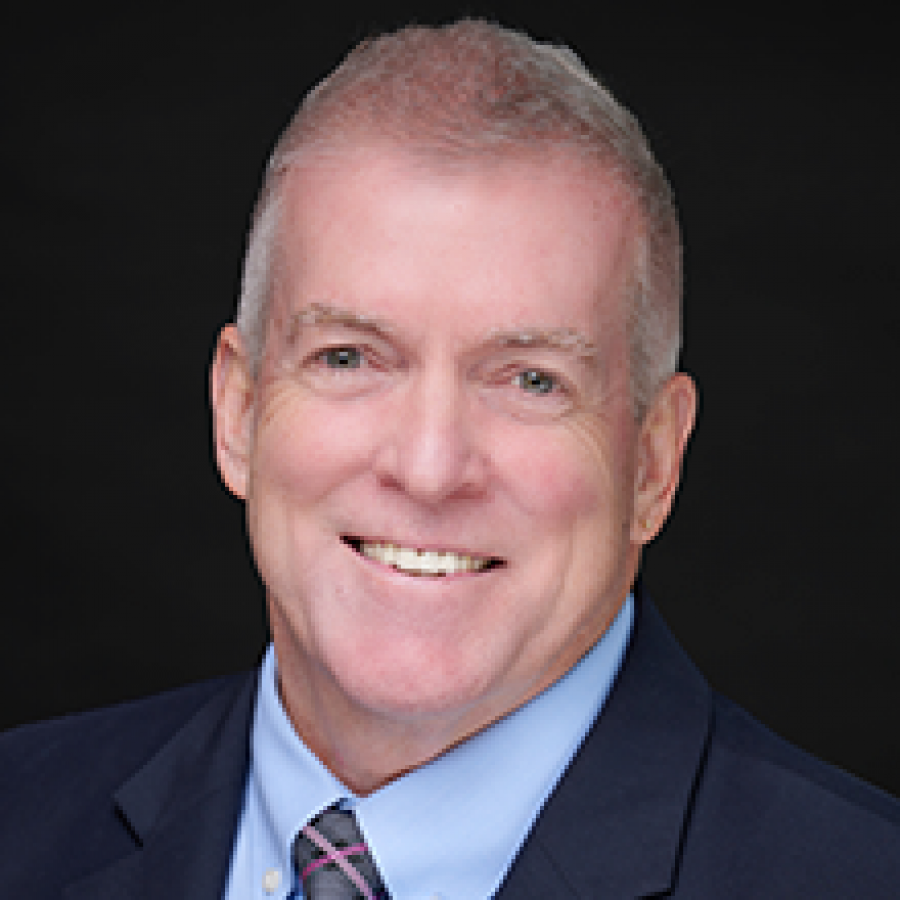
Panelist: Jonathan "Jon" Darby
Former Director of Operations, National Security Agency
Mr. Darby is a nearly 39-year veteran of the U.S. Intelligence Community, primarily in the National Security Agency (NSA)/Central Security Service (CSS), culminating in serving over four years as the NSA/CSS Director of Operations (DO). Prior to assuming the DO position, which oversees all of NSA’s collection, code-breaking, analysis and production of signals intelligence (SIGINT), he led some of NSA’s most difficult missions, including Counterterrorism, Cybersecurity Operations, and SIGINT analysis and production on all geographic and transnational missions. He managed a budget in the billions, drove development and use of advanced technologies, and in multiple positions led thousands of globally distributed civilian and military personnel providing intelligence support for military, diplomatic, cybersecurity and law enforcement operations.
Starting his career as a Russian language analyst, Mr. Darby served in a variety of field and operations management positions at NSA and abroad. He spent over a decade following 9/11 in various leadership positions in NSA’s counterterrorism and counterproliferation missions, to include serving as NSA’s Chief of Counterterrorism during the Osama bin Laden operation. Other key senior leadership assignments include serving as NSA’s Chief of SIGINT Analysis and Production and the Deputy Chief of Cybersecurity Operations.
Mr. Darby is on the Board of Directors of ManTech, the Advisory Board of Intelligent Artifacts and is a Senior Advisor with Beacon Global Strategies. In addition, he is an independent consultant as the Principal in Jon Darby Consulting LLC.
Mr. Darby is a graduate of Carleton College, where he majored in Political Science/International Relations with a Concentration in Russian Studies.
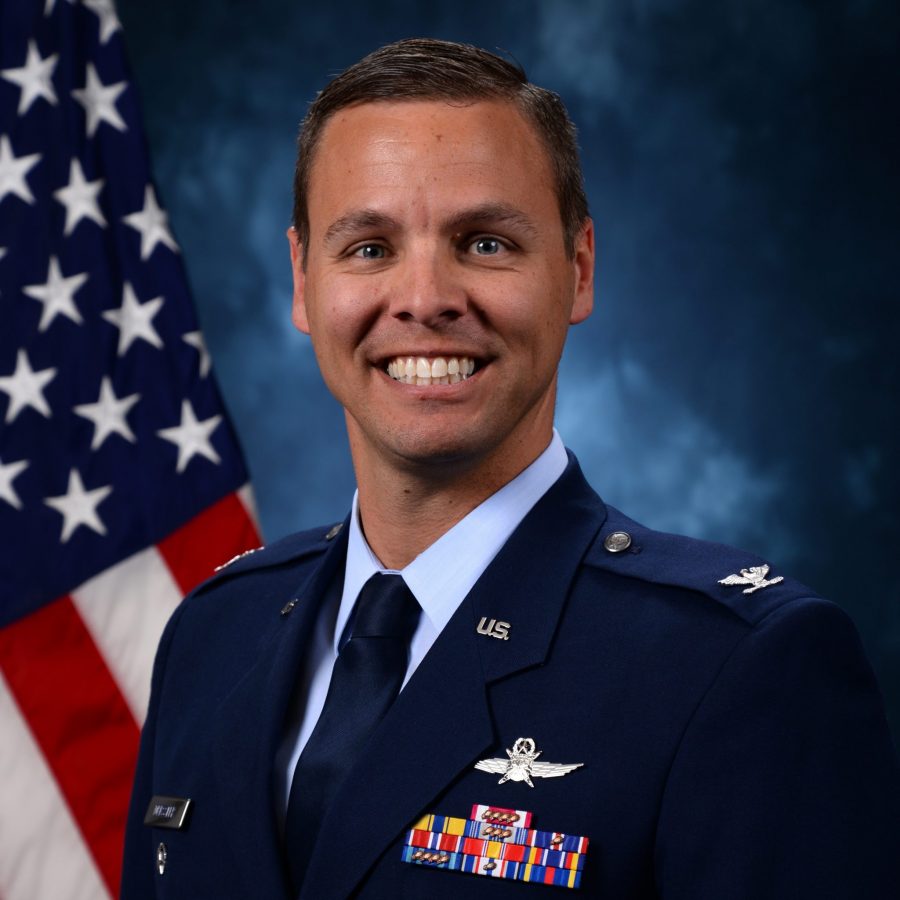
Panelist: Colonel Judson C. Dressler
Permanent Professor and Head of the Department of Computer and Cyber Sciences, U.S. Air Force Academy
Colonel Judson Dressler is the Permanent Professor and Head of the Department of Computer and Cyber Sciences, United States Air Force Academy. He leads the 26-member department that administers the ABET-accredited and NSA-recognized Computer Science and Cyber Science programs. In addition to teaching over 1200 cadets each year, his department is home to the Academy Center for Cyberspace Research which conducts long-term research in areas such as Autonomy, Artificial Intelligence, Immersive Environments, and Cyber Security.
Colonel Dressler received his commission from the United States Air Force Academy in 2005. He holds a PhD in Computer Science from Rice University. He has served in various assignments including Commander of the 835th Cyberspace Operations Squadron where he led a Total Force squadron of 134 cyber Airmen to conduct threat-focused, intelligence driven defensive cyberspace operations. He served as the Director of the Commander's Action Group and Legislative Liaison for 24th Air Force, providing executive decision support and strategic messaging for senior Air Force and congressional leaders. Additionally, Colonel Dressler commanded the Air Force's advanced cyber schoolhouse leading a team of 30 personnel driving the Air Force's component of the nation's Cyber Mission Force to full operational capability. His last assignment was as Director, Air Force CyberWorx, a public-private design center focused on cyber capabilities and melding military, academic, and industry expertise to solve operational problems.
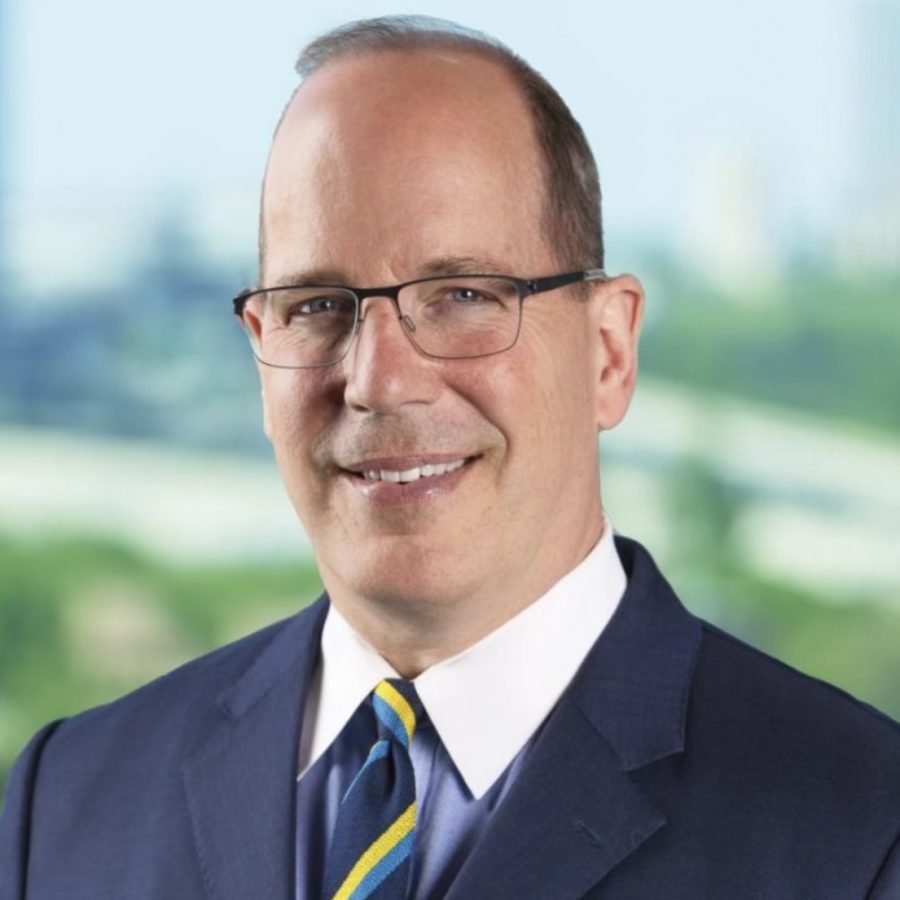
Panelist: The Hon. Christopher Ford, Ph.D.
Visiting Fellow, Hoover Institution, Stanford University; Visiting Professor, Graduate Department of Defense and Strategic Studies, Missouri State University
Dr. Christopher Ford is a Visiting Fellow at Stanford University’s Hoover Institution and a Visiting Professor in Missouri State University’s Graduate Department of Defense and Strategic Studies. Dr. Ford previously served as a MITRE Fellow at the MITRE Corporation, where he was also the founding Director of the Center for Strategic Competition (CSC).
From January 2018 until January 2021, following his unanimous confirmation by the U.S. Senate, Dr. Ford served as Assistant Secretary of State for International Security and Nonproliferation. He also exercised the authorities of the Under Secretary for Arms Control and International Security from October 2019 until his resignation from the Department. During his tenure at State, Dr. Ford helped lead the Department’s reorientation to support U.S. competitive strategy vis-à-vis China and Russia. He also reformed his bureau’s $265 million in nonproliferation capacity-building programming to tie it more closely to intelligence-informed threat assessments, realigned the bureaus’ structure to ensure better support for U.S. competitive strategy, and led the development of new initiatives such as the “Creating an Environment for Nuclear Disarmament” dialogue. When performing the duties of the Under Secretary, Dr. Ford also approved hundreds of millions of dollars in U.S. arms transfers, including to Taiwan.
Before his service at State, Dr. Ford served as Special Assistant to the President and Senior Director for Weapons of Mass Destruction (WMD) and Counterproliferation at the U.S. National Security Council. There, among other things, he led the development of the U.S. Government’s responsive strategy to Russian violations of the Intermediate-range Nuclear Forces Treaty and the Open Skies Treaty, contributed to the drafting of the 2017 U.S. National Security Strategy and the 2018 Nuclear Posture Review, and ran the Administration’s internal “Nuclear Vision Review” of disarmament policy.
A veteran of many years as a congressional staffer, Dr. Ford served in senior roles on the staffs of the U.S. Senate’s Committees on Foreign Relations, Banking, Appropriations, Governmental Affairs, and Intelligence, as well as serving as staff director of the Permanent Select Committee on Investigations. He has also been a Principal Deputy Assistant Secretary of State, U.S. Special Representative for Nuclear Nonproliferation, and a Senior Fellow at Hudson Institute in Washington, D.C. From 1994 until 2011, Dr. Ford served as an intelligence officer in the U.S. Navy Reserve, which he left with an Honorable Discharge at the rank of Lieutenant Commander. A summa cum laude graduate of Harvard who got his doctorate at Oxford as a Rhodes Scholar and a law degree from Yale, and he is a member of the Council on Foreign Relations, the International Institute for Strategic Studies, and the American Society of International Law.
Dr. Ford is the author of three books – China Looks at the West: Identity, Global Ambitions, and the Future of Sino-American Relations (2015), The Mind of Empire: China’s History and Modern Foreign Relations (2010), and The Admirals’ Advantage: U.S. Navy Operational Intelligence in World War II and the Cold War (2005) – as well as a great many articles and monographs. His personal website is https://newparadigmsforum.com.
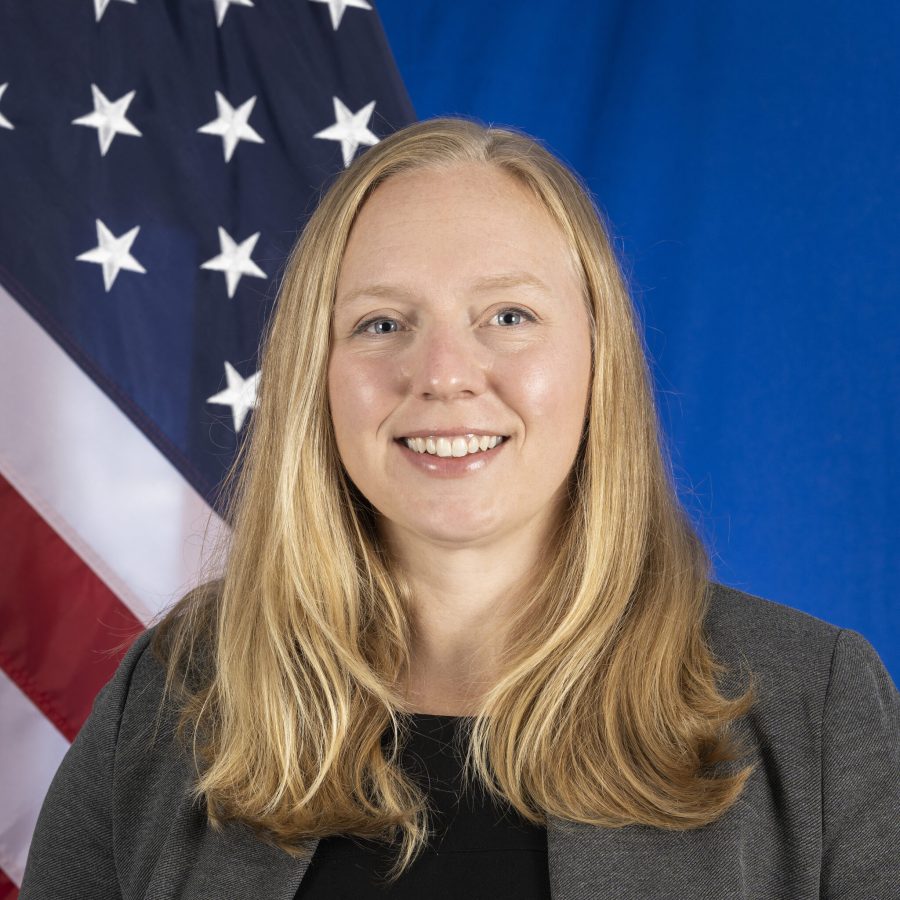
Panelist: Kelly Fletcher, Ph.D.
Chief Information Officer, U.S. Department of State
Dr. Kelly Fletcher, a member of the Senior Executive Service, was named Chief Information Officer (CIO) and the Assistant-Secretary level head of the Bureau of Information Resource Management on October 3, 2022. As Chief Information Officer (CIO), she establishes technology strategic direction and provides oversight for $ 2.5B of technology programs across the Department.
Dr. Fletcher joined the Department from the U.S. Department of Defense (DoD), where she was the Principal Deputy Chief Information Officer. Dr. Fletcher’s federal government career has included leadership roles in both the technology and strategic resourcing domains. Prior to joining DoD CIO, Dr. Fletcher served as the Deputy Director for Program Analysis & Evaluation at the Department of Homeland Security (DHS) where she supervised and coordinated the development of the DHS-wide budget (~$50B appropriated). She also led the realignment of the Federal Protective Services (more than 10,000 employees, ~$1B annual spend) from the Cybersecurity & Infrastructure Security Agency (CISA) to the Management directorate.
Dr. Fletcher earned her Ph.D. in engineering from Georgia Institute of Technology and her B.S. from Washington University in St. Louis.
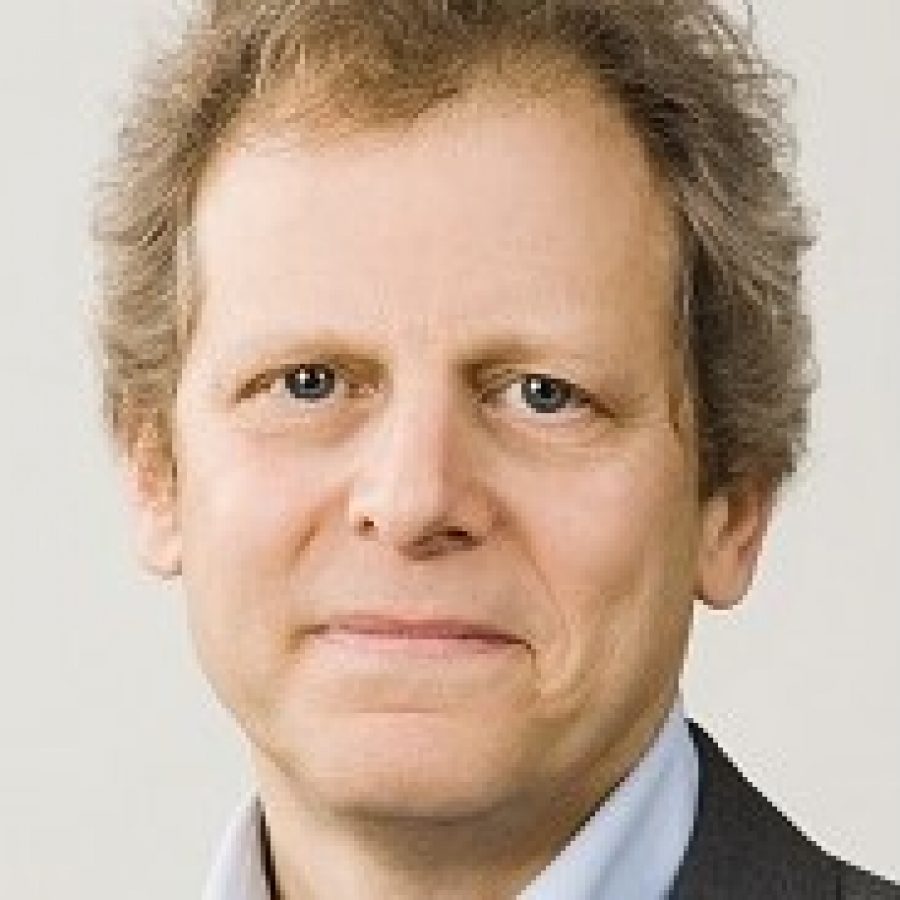
Panelist: Charles Hutzler
Senior News Editor, Washington Bureau, The Wall Street Journal
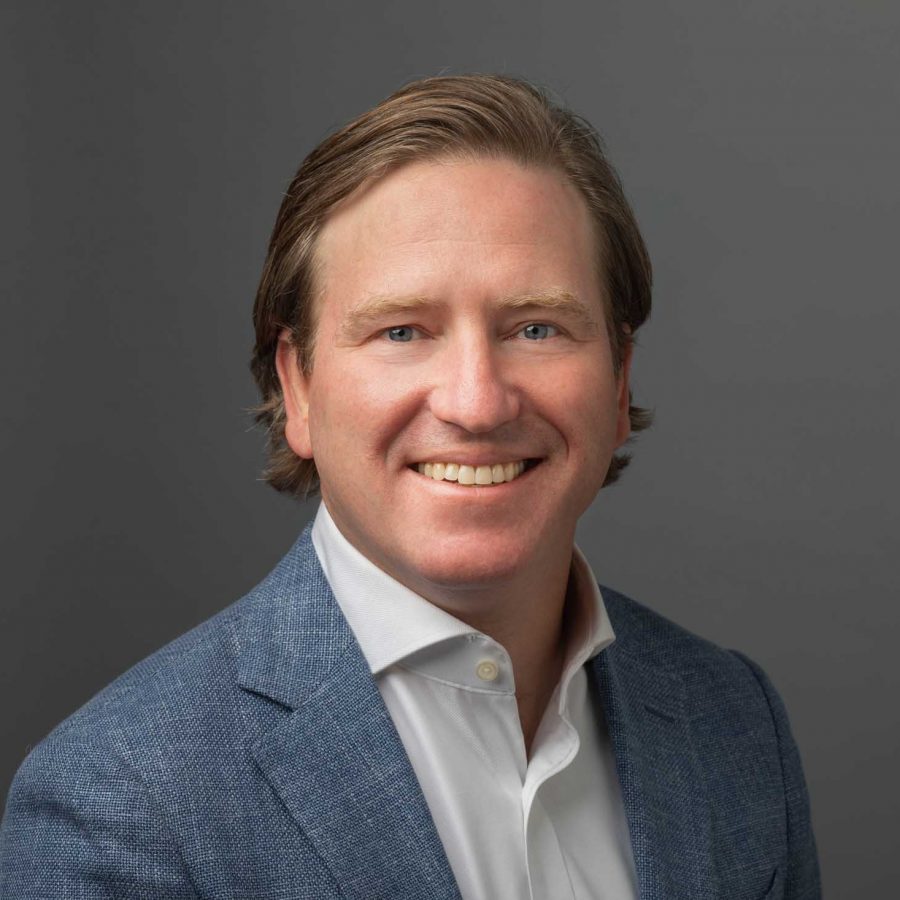
Panelist: Chris Krebs
Founding Partner, Krebs Stamos Group
Chris Krebs is a Founding Partner of the Krebs Stamos Group, a technology and geopolitical risk management firm. Chris was the first director of the U.S. Cybersecurity and Infrastructure Security Agency (CISA), leading the nation’s civilian cyber defense and business resilience and risk management efforts, including the protection of the 2020 U.S. election. He is the Newmark Senior Fellow in Cybersecurity at the Aspen Institute where Chris is the Co-Chair of the Aspen Institute’s Cybersecurity Working Group. Prior to his recent government service, he led Microsoft’s U.S. cybersecurity policy efforts. Chris is a CBS News contributing expert and a Resident Scholar with the University of Virginia Center for Politics.
Mr. Krebs holds a bachelor’s degree in environmental sciences from the University of Virginia and a J.D. from the Antonin Scalia Law School at George Mason University.
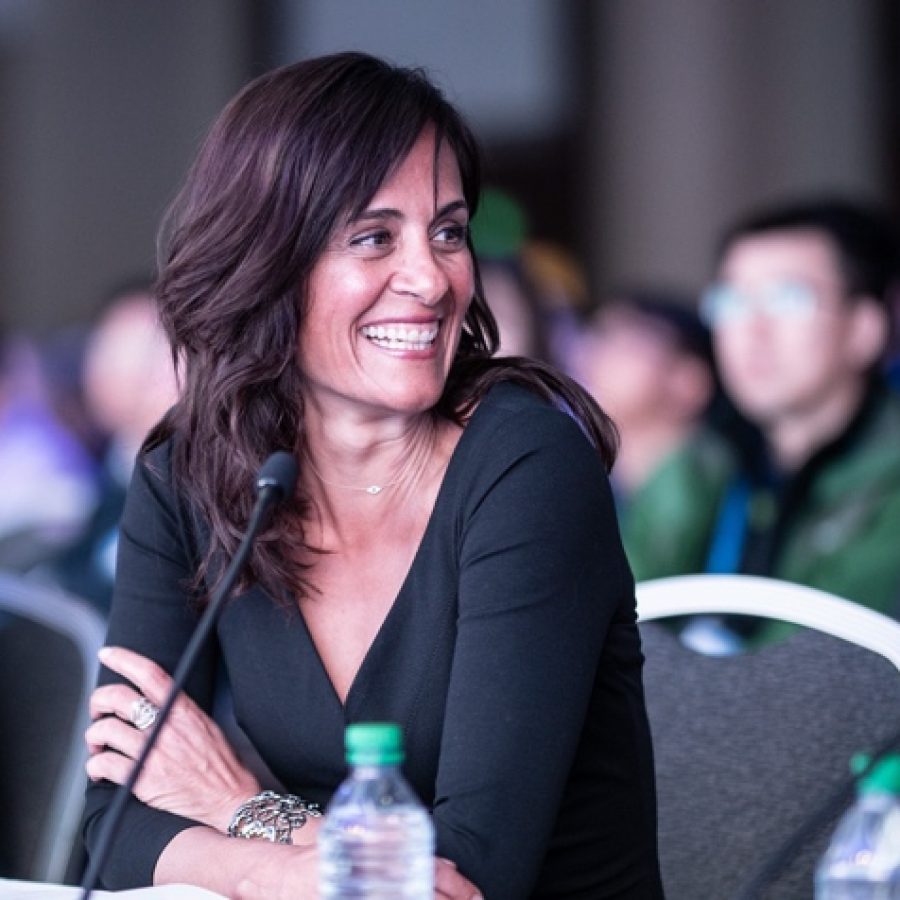
Session Chair: Niloofar Razi Howe
Senior Operating Partner, Energy Impact Partners
Niloofar Razi Howe has been an investor, executive and entrepreneur in the technology industry for the past 25 years, with a focus on Cybersecurity for the past 15. Ms. Howe is a Senior Operating Partner at Energy Impact Partners, a VC fund investing in companies shaping the energy landscape of the future. She serves on the Board of Directors of Morgan Stanley Private Bank, NA and Morgan Stanley Bank, NA (Risk Committee, Operations and Technology Committee), Pondurance (as Executive Chair), Tenable (NASDAQ: TENB, Comp Committee), Composecure (NASDAQ: CMPO, Audit Committee), Recorded Future, Swimlane and on the Board of Advisors of Dragos, Enveil, RangeForce, Noetic Cyber, and Picnic Threat. She is a life member at the Council on Foreign Relations and a Senior Fellow, International Security Program at New America, a nonprofit, nonpartisan think tank. Her non-profit work includes serving as Board Chair of IREX, an international development and education organization working in over 120 countries focused on promoting social justice and lasting change, and as a Member of the Board of Trustees of the Smithsonian National Museum of Asian Art. Ms. Howe serves on a number of US government advisory boards including on the Department of Homeland Security’s Cybersecurity Infrastructure Security Agency’s Advisory Council.
Previously, Ms. Howe served as Chief Strategy Officer and SVP of Strategy and Operations at RSA, a global cybersecurity company where she led corporate strategy, corporate development and planning, business development, global program management, business operations, security operations and Federal business development. Prior to RSA, Ms. Howe served as the Chief Strategy Officer of Endgame, Inc., a leading enterprise software security company, where she was responsible for driving market and product strategy, as well as leading marketing, product management, corporate development and planning. Prior to her operating roles, Ms. Howe spent twelve years leading deal teams in private equity and venture capital; first as a Principal at Zone Ventures, an early-stage venture capital firm in Los Angeles, and then as Managing Director at Paladin Capital Group, a Washington DC based private equity fund focused on investing in next generation security companies. Ms. Howe started her professional career as a lawyer with O’Melveny & Myers and as a consultant with McKinsey & Co.
Ms. Howe’s previous board roles include serving on the Board Directors of Initiate Systems (acquired by IBM), Courion Corporation (acquired by K1 Investment), Command Information (acquired by Salient), Safeview (acquired by L-3), Neven Vision (acquired by Google), Global Rights, an international human rights organization, as Chair, Sibley Memorial Hospital (a member of Johns Hopkins Medicine), as chair of its Investment Committee, and Sibley Memorial Hospital Foundation, as Vice Chair. Ms. Howe graduated with honors from Columbia College and holds a JD cum laude from Harvard Law School.
Ms. Howe speaks regularly on national security, cybersecurity, technology, innovation, corporate governance and corporate culture. She also created a TEDx talk entitled “The Gift of Exile” about the long-term opportunities that can arise from the most difficult challenges encountered in childhood for both the individuals who suffer the adversity and the communities that can accept and integrate such individuals. She is a regular judge at innovation competitions including the RSA Conference Innovation Sandbox Competition, the RSA Conference Launchpad Competition, and SINET16 Innovation Competition.
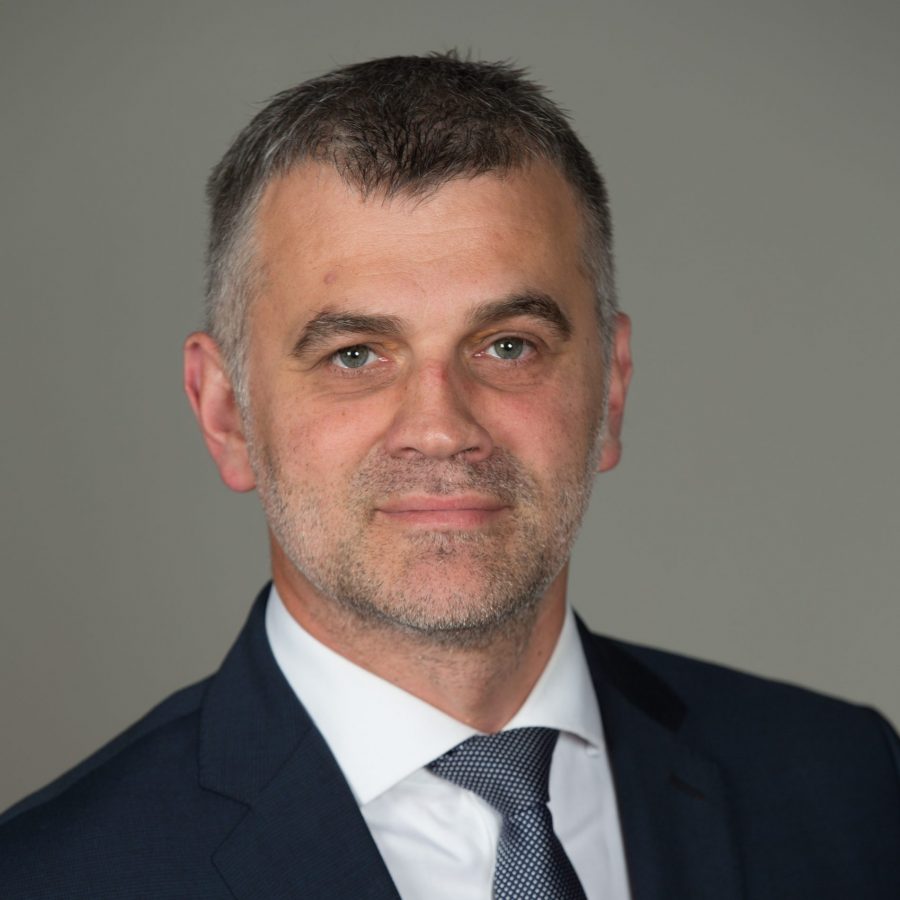
Panelist: Ambassador Kristjan Prikk
Estonian Ambassador to the United States
Kristjan Prikk is the Estonian Ambassador to the United States since May 2021. Before assuming his current duties, Prikk served as the Permanent Secretary of the Estonian Ministry of Defense. Prior to becoming the Permanent Secretary, Mr. Prikk worked as Undersecretary for Defense Policy in the Ministry of Defense from July 2017 to August 2018. From 2015 to 2017 Mr. Prikk was the Director of National Security and the Defense Coordination Unit of the Estonian Government Office. He also served as Deputy Director of the same office for two years prior to becoming the Director in 2015. His previous Ministry of Defense assignments include serving as Defense Counsellor at the Estonian Embassy in Washington, D.C. (2010-2013) and as Director of International Cooperation Department in Tallinn (2007-2010). Mr. Prikk holds a Master’s degree from the United States Army War College and a Bachelor’s degree from the University of Tartu, Estonia. Mr. Prikk is married to Liis, with whom he has two daughters and a son.
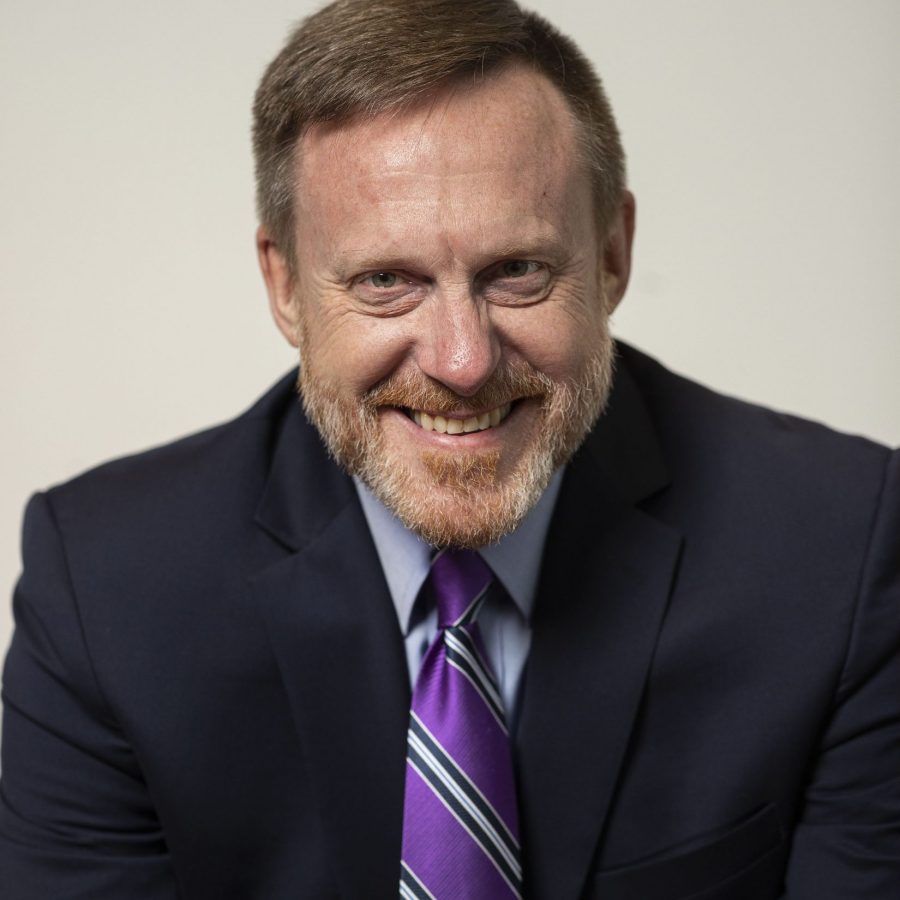
Panelist: Admiral Michael S. Rogers (Ret.)
Former Commander, U.S. Cyber Command and Director, National Security Agency
Admiral Rogers is a member of the Board of Directors or Advisory Board to multiple companies in the private sector and works in the consulting and venture capital arenas across the globe while also speaking internationally to various business and academic groups in the areas of cyber, technology, leadership, crisis response and global security. He can be seen on major media outlets across the globe on occasion addressing those same issues. He is a Senior Fellow and Adjunct Professor with Northwestern University’s Kellogg School of Management’s Kellogg Executive Leadership Institute and works with DoD in the mentoring and professional development of its General and Flag officers.
Mike served in the U.S. Navy for nearly 37 years culminating his service in uniform with a four year plus tour as both the Commander, U.S. Cyber Command and Director, National Security Agency. Admiral Rogers retired from the U.S. Navy in 2018 after nearly 37 years of naval service rising to the rank of four- star admiral. He culminated his career in uniform with a four plus year tour as the Commander of U.S. Cyber Command and Director, National Security Agency – creating the DoD’s then newest combatant command and leading the largest intelligence organization in the free world. In those roles he worked with the leadership of the U.S. government, the DoD and the Intelligence community as well as their international counterparts in the conduct of cyber and intelligence activity across the globe. He also assisted in the development of national and international policy with respect to cyber, intelligence, privacy and technology – including extensive work with corporate leadership in the finance, IT, telecommunications and technology – and national security more broadly.
Prior to his final duties he also served as Director of Intelligence for the Joint Chiefs of Staff and the Indo-Pacific Command, focusing on issues associated with China and the broader set of global security challenges.
He is a graduate of Auburn University and holds a Masters in National Security (East Asia) and is a distinguished graduate of the National War College and a graduate of highest distinction from the Naval War College. He is also an MIT Seminar XXI Fellow and a Harvard Senior Executive in National Security alum.

Panelist: Michelle Rozo, Ph.D.
Vice President, Technology, In-Q-Tel
Dr. Michelle Rozo is Vice President of Technology at In-Q-Tel, a non-profit strategic investor that accelerates the development and delivery of cutting-edge technologies to enhance the national security of the United States. She is also currently serving as Vice Chair of the National Security Commission on Emerging Biotechnology, which was established by the National Defense Authorization Act for Fiscal Year 2022 to review advances in emerging biotechnology and related technologies and make recommendations for action by Congress and the federal government. She was previously Director of Technology and National Security at the U.S. National Security Council, and the Principal Director for Biotechnology within the Office of the Under Secretary of Defense for Research & Engineering in the Department of Defense. Dr. Rozo also served as a Senior National Security Advisor for Cooperative Threat Reduction at the Department of State, and as an American Association for the Advancement of Science (AAAS) fellow in the office of Senator Bob Casey. Dr. Rozo is a molecular biologist by training and studied severe infectious diseases as a staff scientist with the Naval Medical Research Center in Fort Detrick, Maryland. She holds a Ph.D. in Biology from the Cell, Molecular, Developmental Biology and Biophysics Program at the Johns Hopkins University and a B.A. in Biology from Northwestern University.
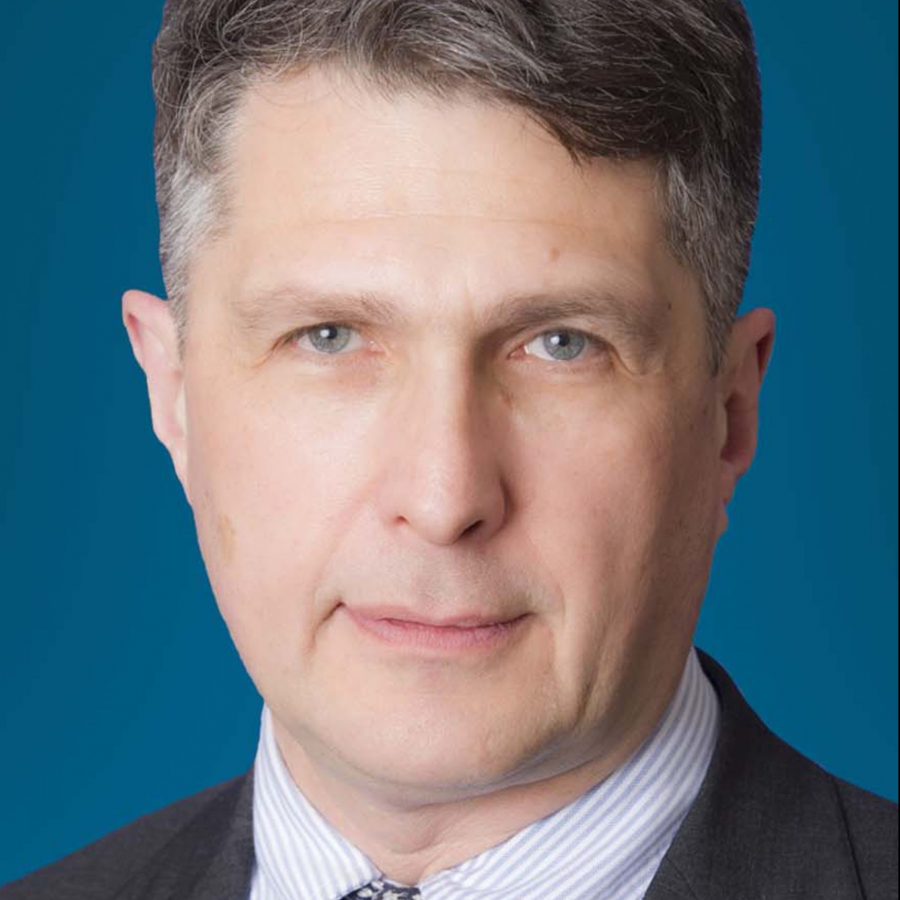
Panelist: Eugene Rumer, Ph.D.
Director and Senior Fellow, Russia and Eurasia Program, Carnegie Endowment for International Peace
Eugene Rumer is a senior fellow and the director of Carnegie’s Russia and Eurasia Program.
Prior to joining Carnegie, Rumer was the national intelligence officer for Russia and Eurasia at the U.S. National Intelligence Council from 2010 to 2014. Earlier, he held research appointments at the National Defense University, the International Institute for Strategic Studies, and the RAND Corporation. He has also served on the National Security Council staff and at the State Department, taught at Georgetown University and the George Washington University, and published widely.
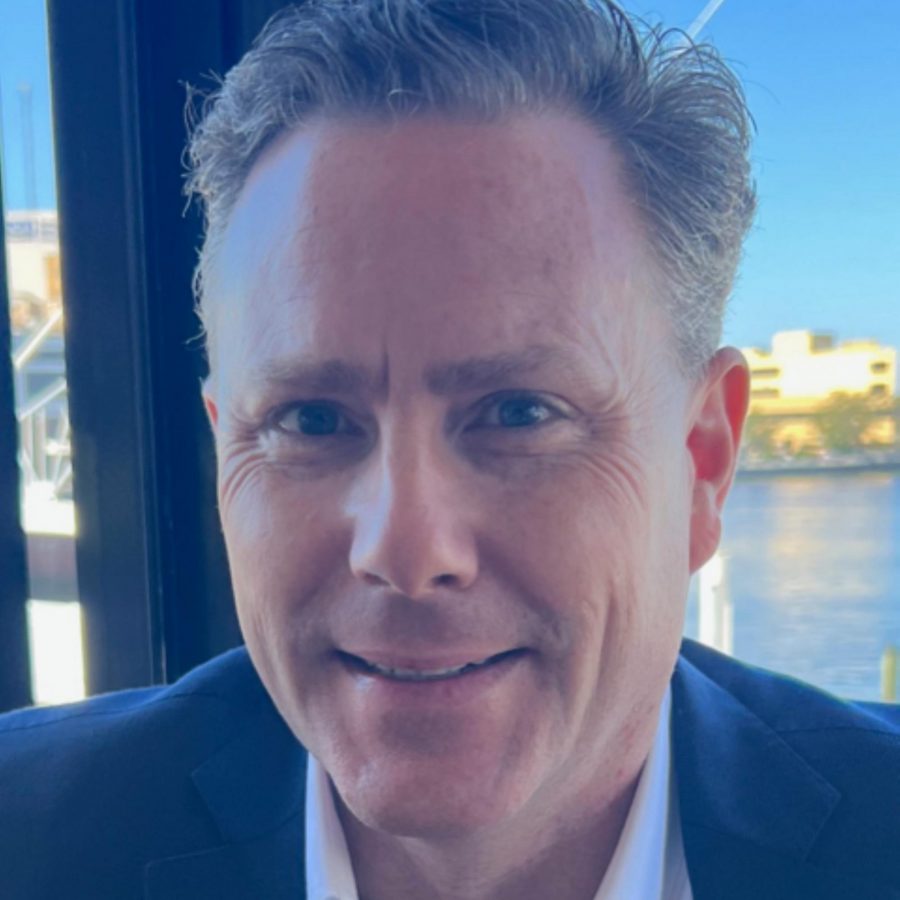
Panelist: Lt. Col. Kurt Sanger, USMC (Ret.)
Director, Integrated Cybersecurity Partners, LLC
Kurt Sanger served the U.S. Marine Corps for over 23 years as a cyber operations attorney, criminal defense counsel and prosecutor, advisor to the Afghan National Army, international law instructor at Marine Corps University and National Defense University, and as a planning officer with U.S. Central Command. He earned a degree in National Security Law from Georgetown University in 2015.
From 2014 to 2017, Kurt was General Counsel for U.S. Marine Corps Forces Cyber Command. He served with U.S. Cyber Command from 2017 to 2022, first as the lead attorney for plans, policy, domestic and international partnerships, and legislative affairs, later as lead attorney for operations and intelligence, and finally as the Command’s Deputy General Counsel. He retired from the Marine Corps in November 2022.
Kurt is founder and director of Integrated Cybersecurity Partners, LLC, an information technology and national security consultancy. He is also a cybersecurity board member and advisor for Cowbell Cyber Insurance and Batten Safe Corporation, and a non-resident Senior Associate with the Center for Strategic and International Studies, a Washington, DC think tank.
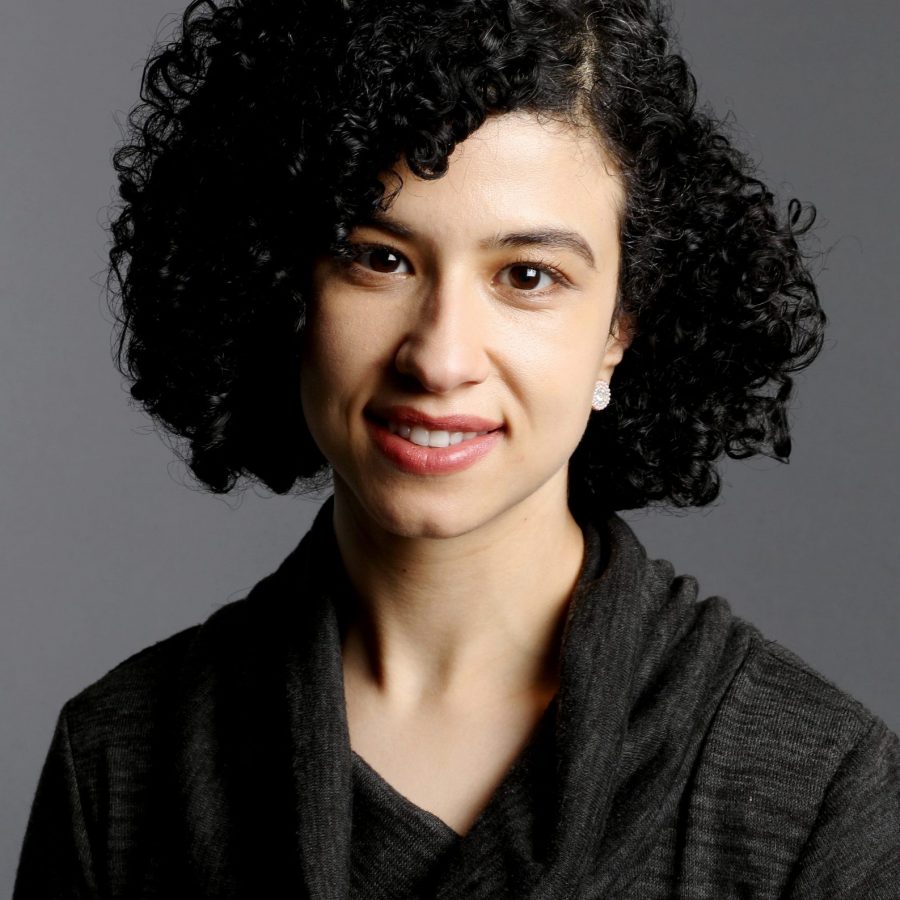
Panelist: Sarah Shoker, Ph.D.
Research Scientist, OpenAI
Dr. Sarah Shoker is a Research Scientist at OpenAI, where she leads the geopolitics team under the {olicy Research department. She was previously a SSHRC postdoctoral fellow in political science at the University of Waterloo, where she worked on the policy impact of emerging technologies on international security.
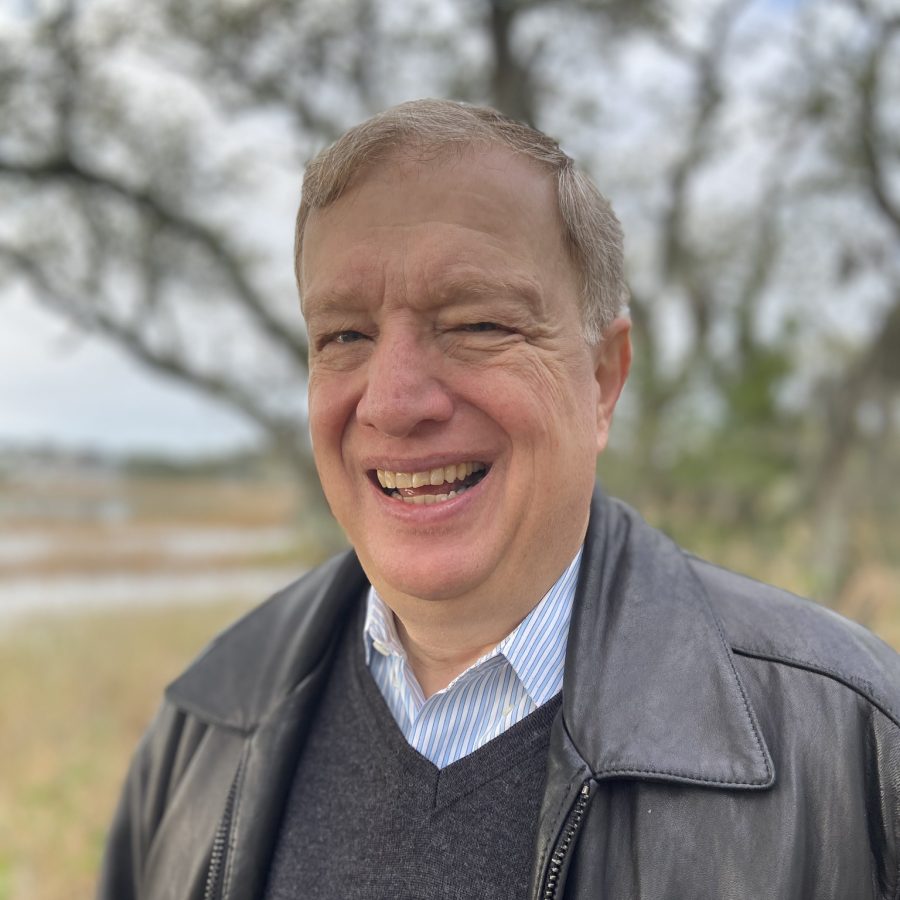
Session Chair: Thomas Schwartz, Ph.D.
Distinguished Professor of History and Professor of Political Science and European Studies
Thomas Schwartz is a Distinguished Professor of History and Professor of Political Science and European Studies at Vanderbilt University. Most recently, he is the author of Henry Kissinger and American Power: A Political Biography, as well as the books America’s Germany: John J. McCloy and the Federal Republic of Germany (1991) and Lyndon Johnson and Europe: In the Shadow of Vietnam(2003). He was the co-editor with Matthias Schulz of the edited volume, The Strained Alliance: US-European Relations in the 1970s, (2009). He has received fellowships from the German Historical Institute, the Norwegian Nobel Institute, the Woodrow Wilson Center, and the Social Science Research Center. He served on the Historical Advisory Committee of the Department of State, and was the President of the Society of Historians of American Foreign Relations. He is also the proud father of three daughters.

Panelist: Konstantin Sonin, Ph.D.
John Dewey Distinguished Service Professor, Harris School of Public Policy, University of Chicago
Konstantin Sonin is the John Dewey Distinguished Service Professor at the University of Chicago Harris School of Public Policy. His research interests include political economics, development, and economic theory. His papers have been published in leading academic journals in economics and political science. In addition to his academic work, Sonin blogs on Russian political and economic issues, and has contributed hundreds of columns and op-eds to major Russian media. In 2012, he was an economic advisor to the presidential campaign of Mikhail Prokhorov. Sonin earned an MSc and PhD in mathematics from Moscow State University and an MA in economics at Moscow’s New Economic School, was a postdoctoral fellow at Harvard a member of the Institute for Advanced Study in Princeton, and served on the faculty of the New Economic School (NES) and HSE University in Moscow.
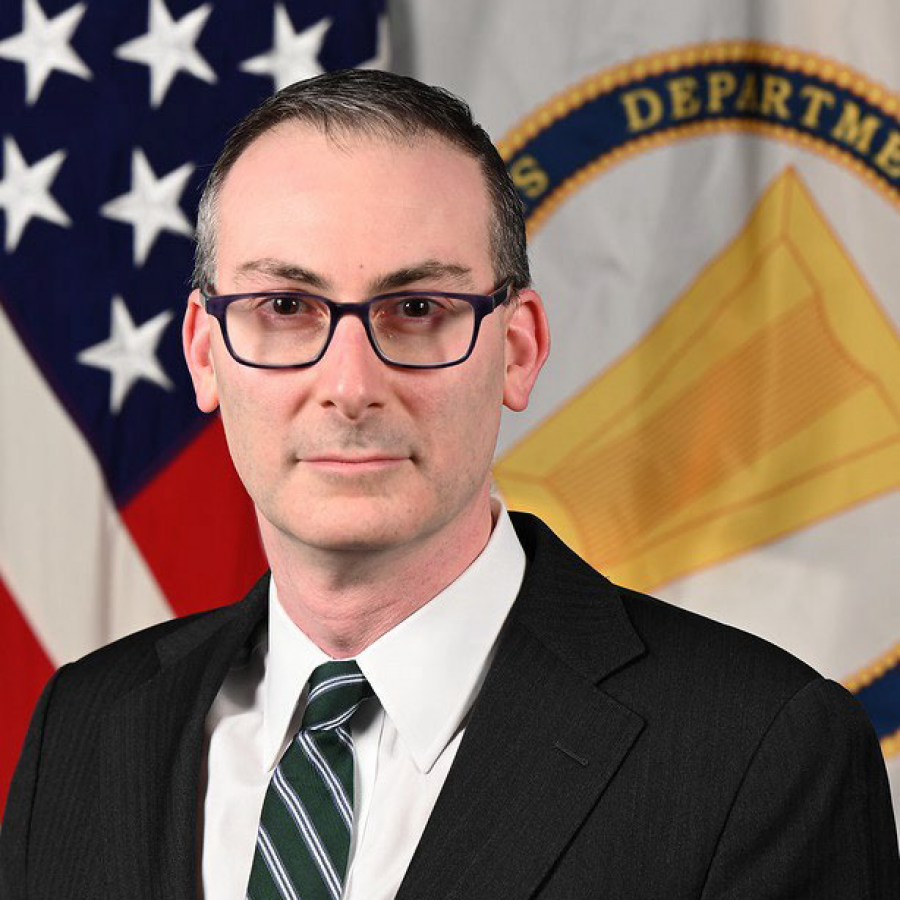
Session Chair: Michael Sulmeyer, Ph.D.
Principle Cyber Advisor to the Secretary of the Army and Army Chief of Staff, U.S. Army
Dr. Michael Sulmeyer assumed the position as the Principal Cyber Advisor to the Secretary of the Army and the Army Chief of Staff on March 14, 2022. He is responsible for advising both the SA and CSA on all cyber matters, including issues of readiness, capabilities, and strategy.
Prior to his appointment as the Principal Cyber Advisor, Dr. Sulmeyer was the Director of the Rapid Vulnerability Review in the Office of the Deputy Secretary of Defense. Previously, he served as the Special Assistant to the President and Senior Director of Cyber Policy at the National Security Council. Prior to that, he was Senior Advisor to the Commander, U.S. Cyber Command.
Outside of government, Dr. Sulmeyer was the Director of the Cybersecurity Project at the Harvard Kennedy School’s Belfer Center for Science and International Affairs. He has also taught at the University of Texas School of Law and was a Senior Fellow at Georgetown University’s Center for Security and Emerging Technology. Dr. Sulmeyer was a Contributing Editor to the national security blog Lawfare and in the mid-1990s, he was the System Operator (SysOp) of The Summit BBS in Santa Barbara, California.
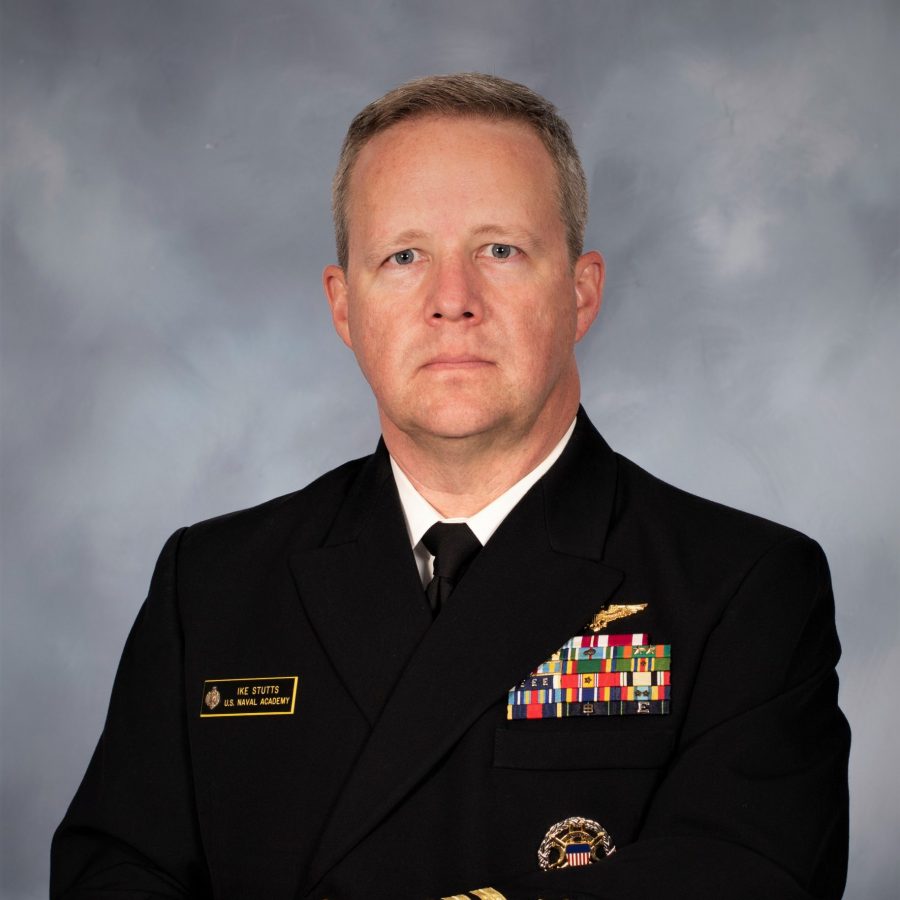
Panelist: CDR Ike R. Stutts, USN, Ph.D.
Permanent Military Professor and Chair of the Cyber Science Department, US Naval Academy
Commander Ike Stutts was raised in Decatur, Alabama and graduated in 1999 from the United States Naval Academy receiving a commission in the United States Navy.
Designated a Naval Aviator in January 2001, and after completing Fleet Replacement Squadron training, Commander Stutts was assigned to HSL-48 in Mayport, Florida. There he deployed with USS HAWES (FFG 53) participating in Operation Noble Eagle and Operation Strong Resolve in Sixth Fleet. He later deployed in USS SAN JACINTO (CG 56) to Sixth and Fifth Fleets, participating in Operation Enduring Freedom and Operation Iraqi Freedom. He completed his tour as Squadron NATOPS Officer.
Following his tour at HSL-48, Commander Stutts served as White House Liaison for the Secretary of the Navy from 2004 to 2006 and then as Flag Aide to OPNAV N88, Director, Air Warfare Division. In 2007, he transferred to USS NASSAU (LHA 4) where he served in the Air Department as Handler and Assistant Air Officer, qualified as Officer of the Deck, and deployed to Fifth Fleet in support of Operation Enduring Freedom. He was then assigned to Navy Personnel Command as Assistant, Washington D.C. Placement Officer (PERS-441A).
He served his Aviation Department Head tour with the EasyRiders of HSL-37. He was Officer-in-Charge of Detachment Two, deploying in USS CROMMELIN (FFG 37) to Seventh Fleet. He completed his tour as squadron Maintenance Officer and was selected as Officer of the Year for 2011. In July 2012, he reported to the Joint Chiefs of Staff, J35 Joint Operations Division (JOD) where he worked EUCOM and NATO operational issues as well as Department of Defense support to Department of State Embassy Security. He was selected as the Joint Staff J3 Officer of the Year for 2013. He reported to the U.S. Naval Academy as rotational military faculty in July 2015 where he was a Master Instructor and Associate Chair of the Weapons and Systems Engineering Department. While there, he was selected as a Permanent Military Professor.
Commander Stutts received his Bachelors of Science in Systems Engineering from the U.S. Naval Academy (1999). He has a Master’s in Industrial and Systems Engineering from Auburn University (2009) and completed his PhD in Industrial and Systems Engineering from Auburn University in 2020. He reported to the Naval Academy in July 2020 as a Permanent Military Professor. In June 2021, he assumed the role of Associate Chair of the Cyber Science Department. In June 2022, he became the Chair of the Naval Academy’s Cyber Science Department. As Chair of the Naval Academy’s newest department, he leads approximately two dozen faculty, both military and civilian, and oversees the teaching of approximately 1100 students each year in Cybersecurity fundamentals as well as over 200 midshipmen in the Cyber Operations major as part of the Naval Academy’s “All, Many, Few” approach to Cyber education.
His personal awards include the Defense Meritorious Service Medal, Meritorious Service Medal, Navy and Marine Corps Commendation Medal (five awards), Joint Service Achievement Medal (two awards), and the Navy and Marine Corps Achievement Medal (three awards).
He is married to Caroline Redmer Stutts of Cambridge, Maryland. They have three children - Julianna, Mason, and Lizzie.
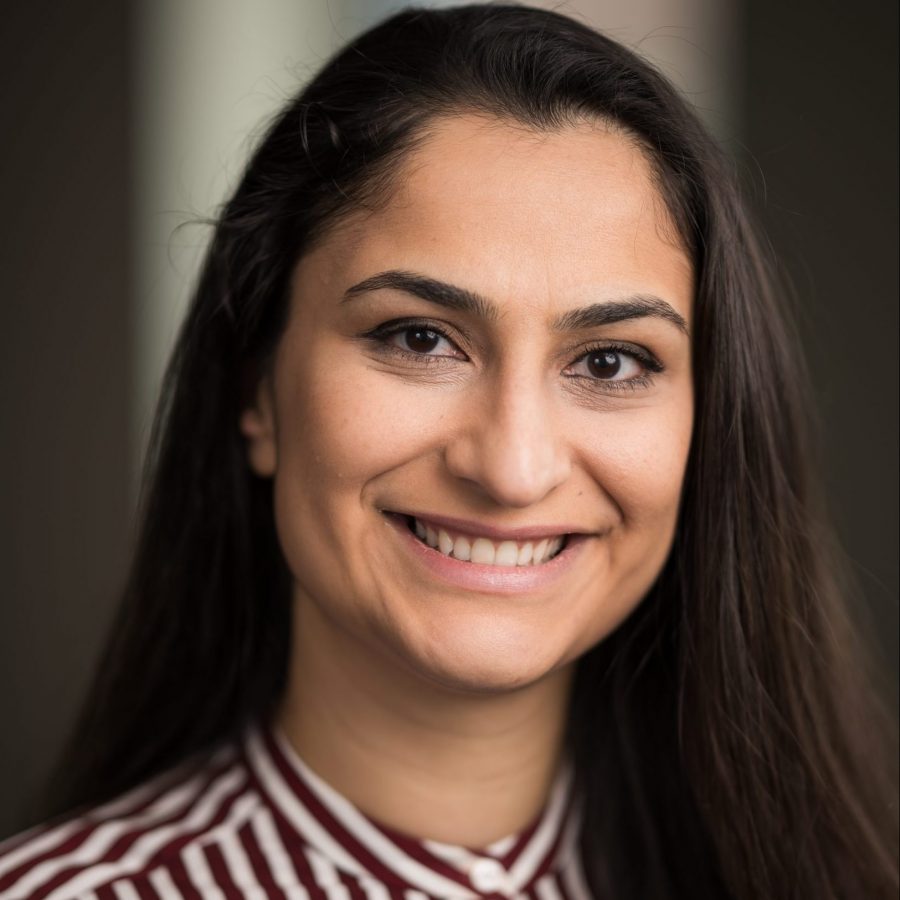
Session Chair: Roya Talibova, Ph.D.
Postdoctoral Research Associate, Department of Political Science, DevLab@Penn, University of Pennsylvania; Assistant Professor (starting Fall 2023), Department of Political Science and Data Science Institute, Vanderbilt University
Roya Talibova is an incoming Assistant Professor of Political Science and Data Science at Vanderbilt University. She studies various topics related to political violence and the political economy of conflict and development, mainly in the broader Eurasian region. In her research, she synthesizes data science, history, and developmental economics with political science to better understand the drivers and outcomes of violence. Her work has been supported by the Carnegie Foundation, Harry Frank Guggenheim Foundation, Marshall Weinberg Foundation, and the Weiser Center for Emerging Democracies. Before becoming a professor, she was the program coordinator for the Future of Diplomacy Project at Harvard Kennedy School’s Belfer Center for Science and International Affairs.
She holds a Ph.D. in Political Science and Scientific Computing and a master’s degree in Statistics from the University of Michigan. Prior to joining the University of Michigan, she received an MPA (2014) degree from Harvard University in 2014 and her MA in International Relations from Seton Hall University, John Whitehead School of Diplomacy.
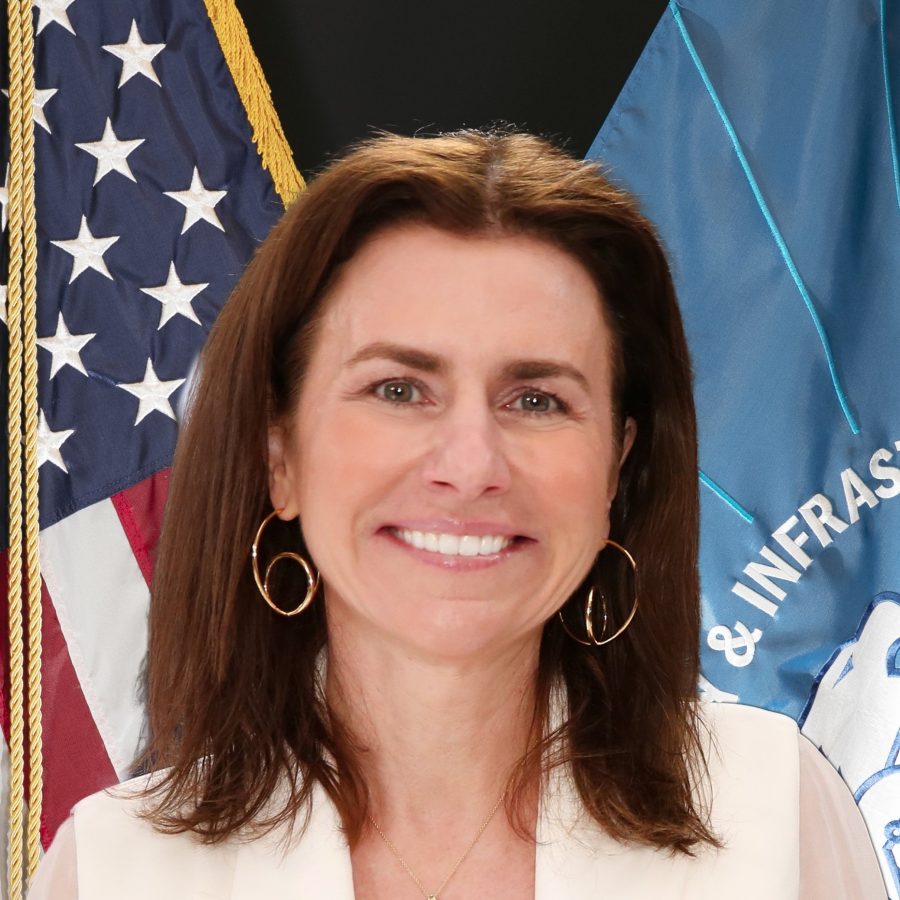
Panelist: Kiersten Todt
Chief of Staff, Cybersecurity and Infrastructure Security Agency (CISA)
Kiersten E. Todt is the Chief of Staff at the Cybersecurity and Infrastructure Security Agency (CISA). As the Chief of Staff, she was responsible for the planning, allocation of resources, and development of long-range objectives in support of the department's goals and milestones; she provides strategic vision, guidance, and direction to ensure CISA's Director is prepared to interdict or respond to threats to the homeland.
Prior to her role at CISA, Kiersten served as the Managing Director of the Cyber Readiness Institute (CRI), a non-profit initiative that convenes senior executives of global companies to develop free cybersecurity tools and resources for small businesses, worldwide. She co-founded CRI in 2017 with the CEOs of Mastercard, Microsoft, PSP Partners, and the retired CEO of IBM. She was also the non-resident scholar at the University of Pittsburgh Institute for Cyber Law, Policy, and Security.
Prior to her CRI role, Ms. Todt was the CEO of Liberty Group Ventures, LLC (LGV), where she developed risk and crisis management solutions for cybersecurity, infrastructure, homeland security, emergency management, and higher education clients in the public, private, and non-profit sectors. Ms. Todt advised senior executives and Boards on cyber risk management, including the development and execution of tabletop exercises and senior-level education and training programs. She also provided strategic advice and counsel to senior leaders in industry and government. Ms. Todt was a member of the team supporting the National Institute of Standards and Technology (NIST) in the development of the Voluntary Cybersecurity Framework called for in President Obama's 2013 Executive Order 13636 on cybersecurity.
She most recently served in the federal government in 2016 as the Executive Director of President Obama's independent, bipartisan Commission on Enhancing National Cybersecurity. In this role, she led the twelve commissioners, who were leaders from industry, government, academia, and law enforcement, to develop a consensus document of cybersecurity recommendations for the incoming Administration.
Ms. Todt was also a partner at Good Harbor Consulting and was responsible for building and managing the company's North America crisis management practice. Before joining Good Harbor, she worked for Business Executives for National Security (BENS) and was responsible for integrating the private sector into state and local emergency management capabilities, following Hurricane Katrina; she also worked with the White House to develop the Federal Maritime Security Strategy. Prior to BENS, she was a consultant for Sandia National Laboratories and worked with the California Governor's Office to develop the homeland security preparedness plan for the Bay Area. Ms. Todt was an adjunct lecturer at Stanford University.
Ms. Todt served as a Professional Staff Member on the U.S. Senate Committee on Homeland Security and Governmental Affairs. She worked for the Committee Chairman, Senator Joseph Lieberman, and was responsible for co-drafting the cybersecurity, infrastructure protection, emergency preparedness, bioterror, and science and technology directorates of the legislation that created the Department of Homeland Security. Prior to her Committee role, she worked in the personal office of Senator Lieberman and focused on economic policy and appropriations. Before working in the Senate, Ms. Todt served in the Office of the Vice President on domestic policy issues.
Kiersten started her career in the federal government as a Presidential Management Fellow in the White House Office of National Drug Control Policy (ONDCP) under Director Barry R. McCaffrey, and was responsible for addressing demand-reduction issues.
Ms. Todt’s commentary on cybersecurity, homeland security, and sport security issues has been featured in national television and print media outlets including NBC, CBS, CNN, Bloomberg, BBC, NPR, Fox News, The New York Times, The Wall Street Journal, The Washington Post, Fortune, and Business Insider.
Ms. Todt graduated from Princeton University, with a degree in public policy from the School of Public and International Affairs and a certificate in African-American Studies. She holds a master's degree in Public Policy and a certificate in negotiation and conflict resolution from the John F. Kennedy School of Government at Harvard University.

Session Chair: Jules White, Ph.D.
Associate Dean of Strategic Learning Programs in the School of Engineering and Associate Professor of Computer Science, Vanderbilt University
Dr. Jules White is Associate Dean of Strategic Learning Programs in the School of Engineering and Associate Professor of Computer Science in the Department of Computer Science at Vanderbilt University. He is a National Science Foundation CAREER Award recipient. His research has won multiple Best Paper Awards. He has also published over 150 papers. Dr. White’s research focuses on cyber-security and mobile / cloud computing in domains ranging from healthcare to manufacturing. His research has been licensed and transitioned to industry, where it won an Innovation Award at CES 2013, attended by over 150,000 people, was a finalist for the Technical Achievement at Award at SXSW Interactive, and was a top 3 for mobile in the Accelerator Awards at SXSW 2013. He has raised over $12 million in venture backing for his startup companies. His research is conducted through the Mobile Application computinG, optimizatoN, and secUrity Methods (MAGNUM) Group at Vanderbilt University, which he directs.